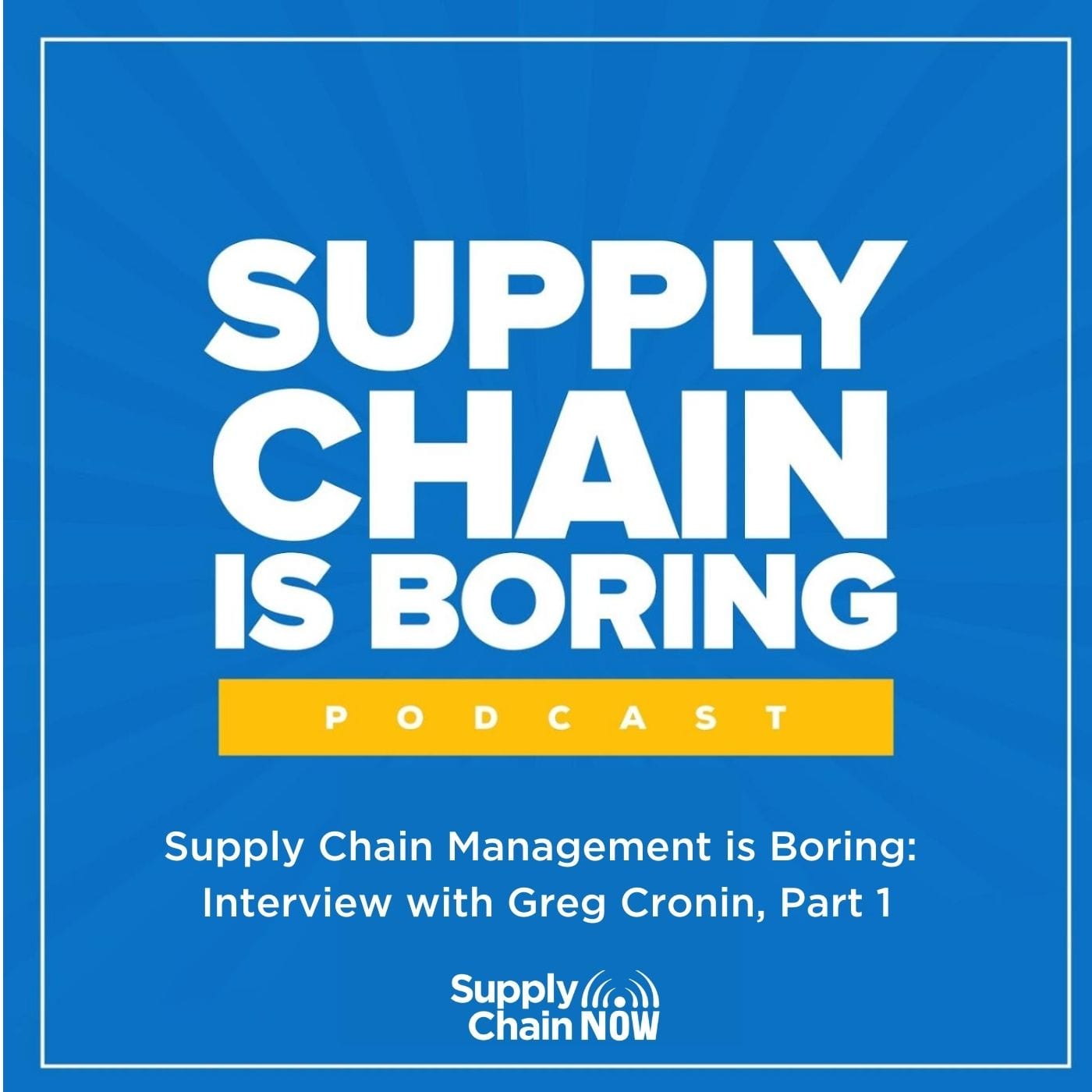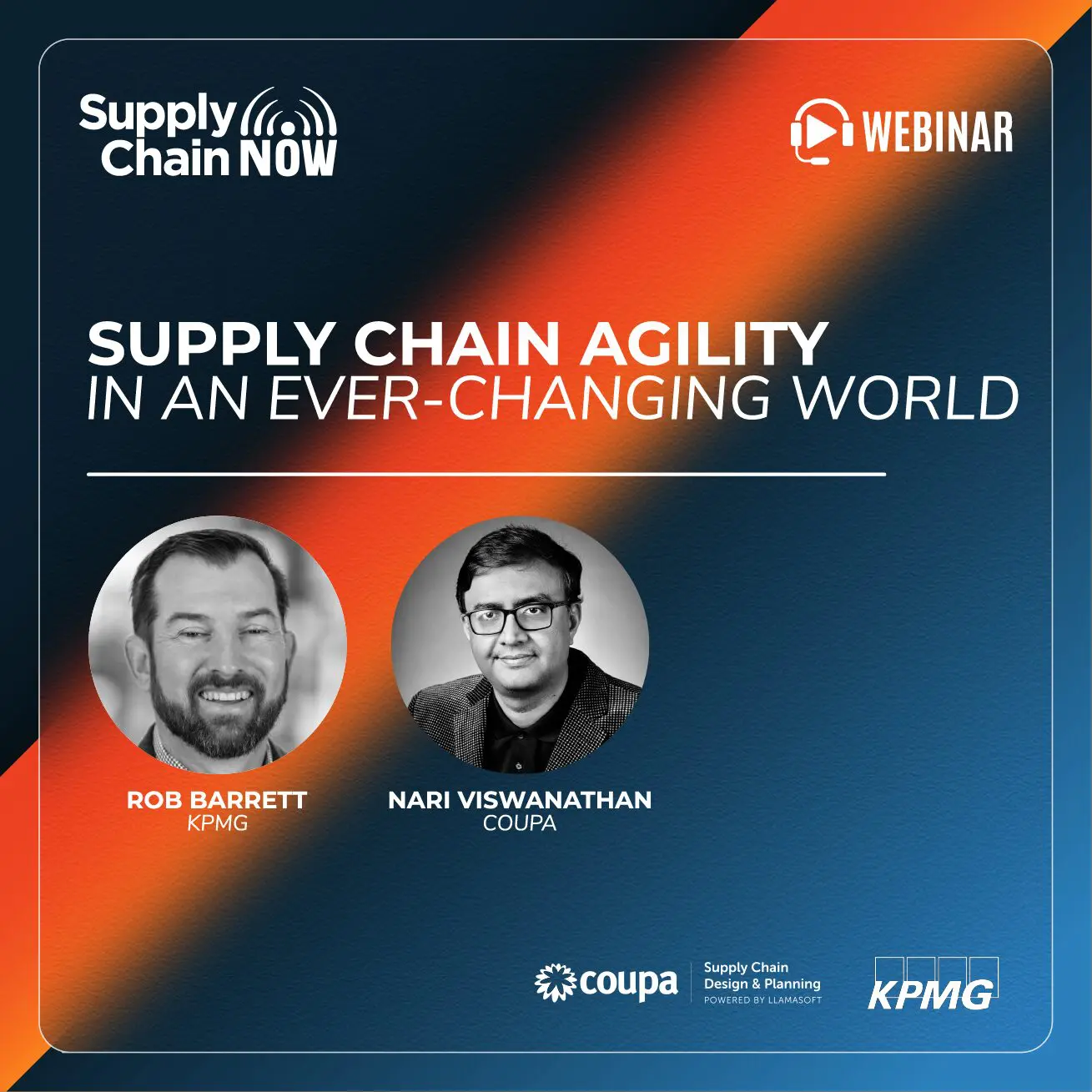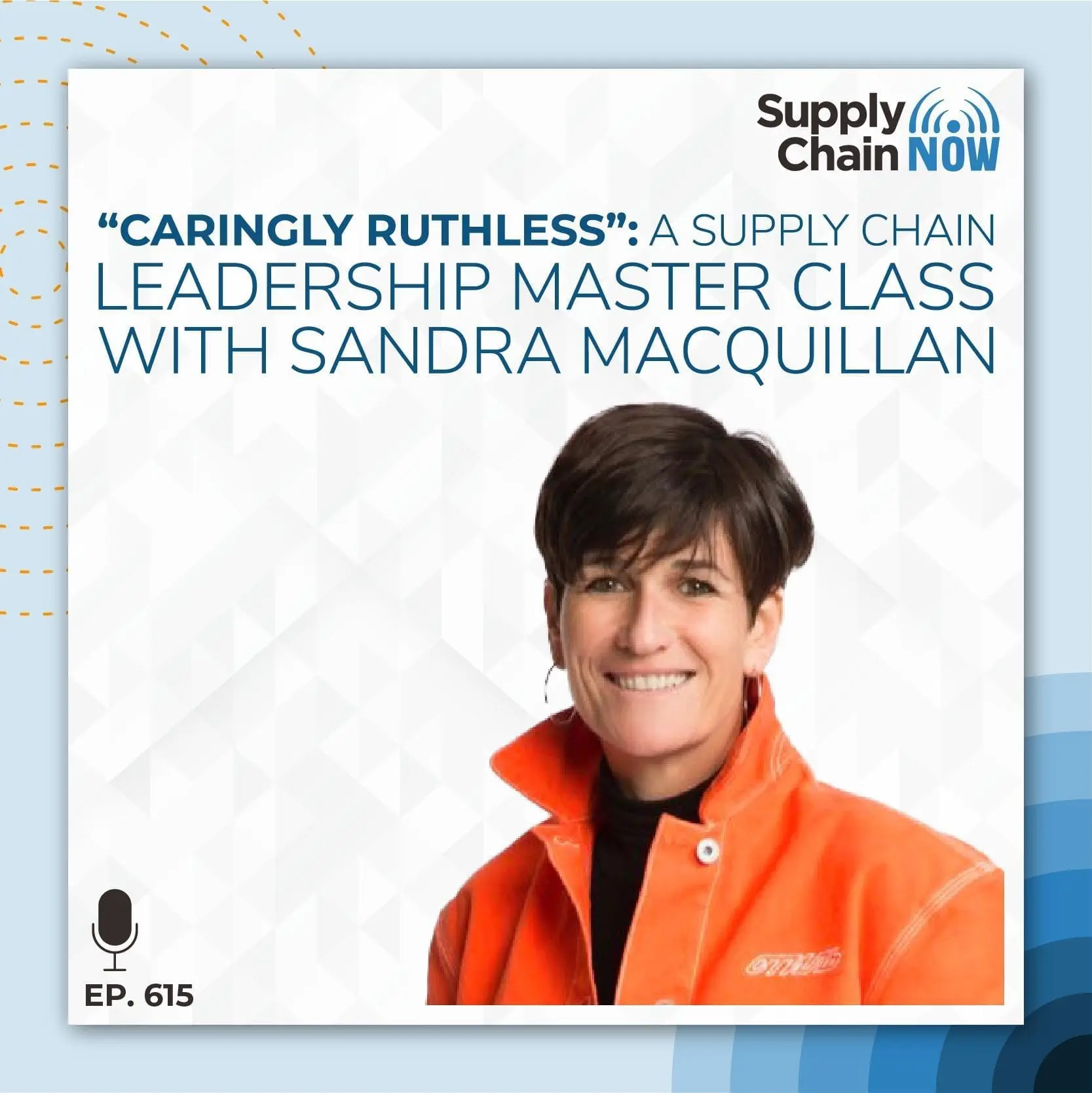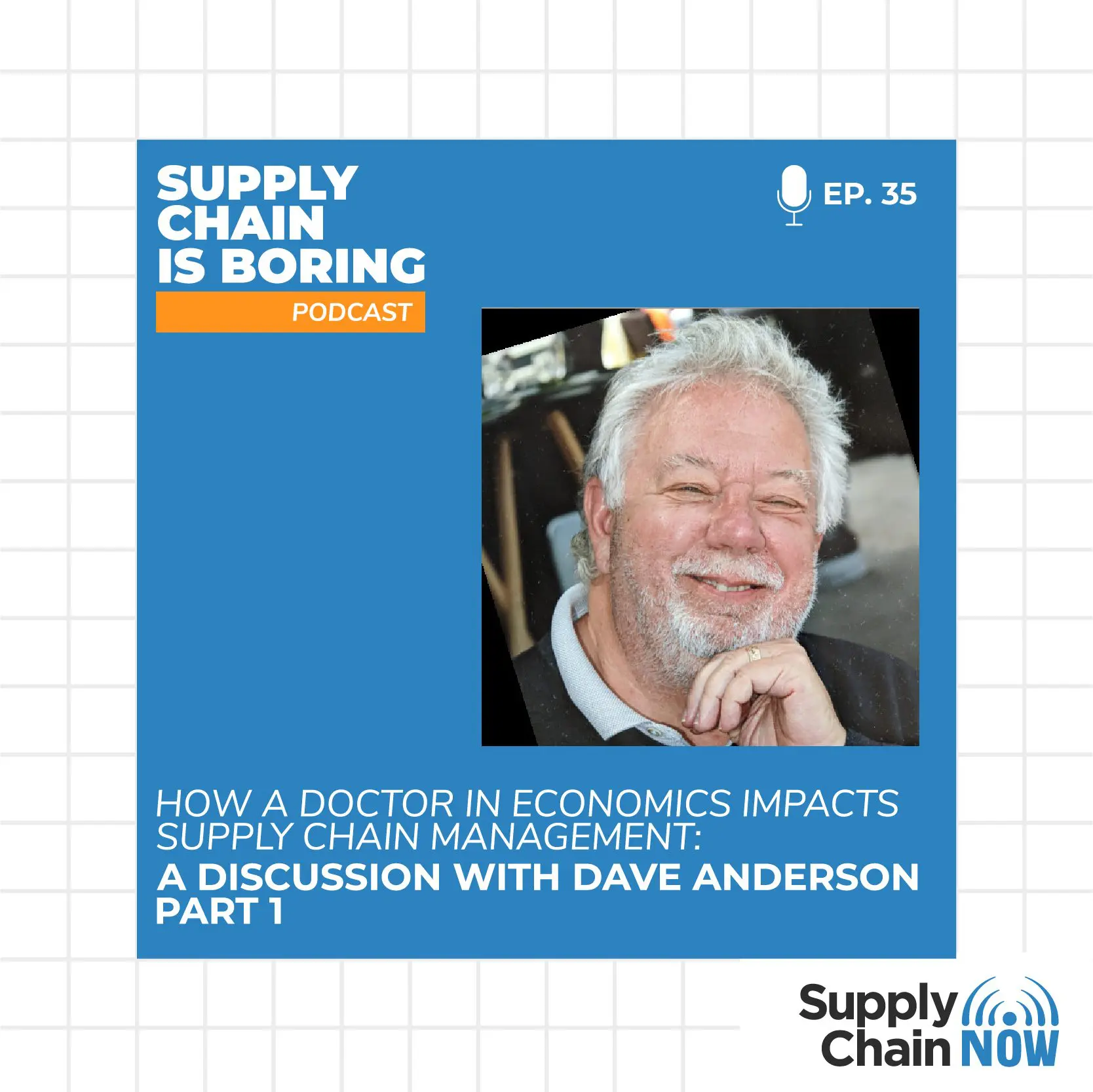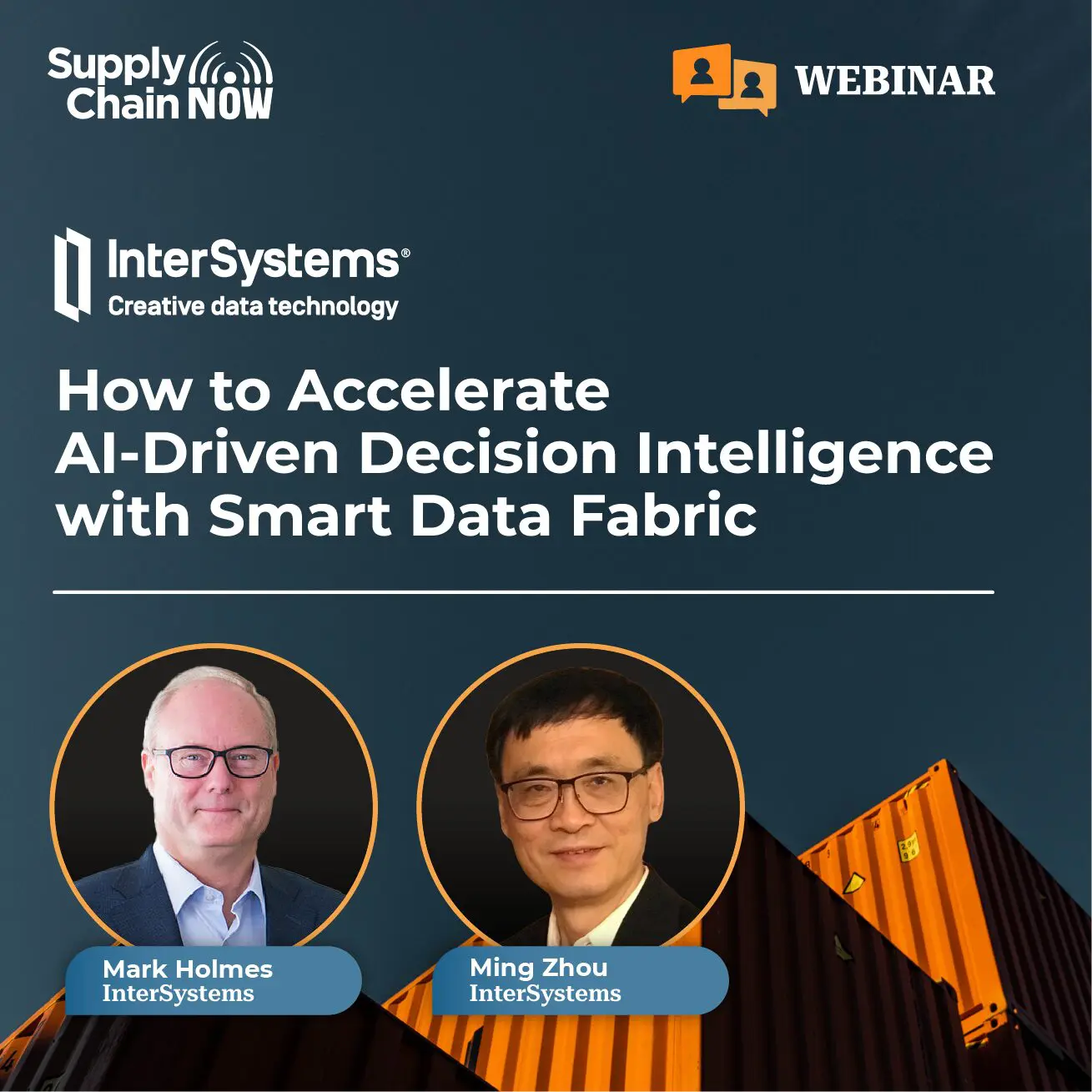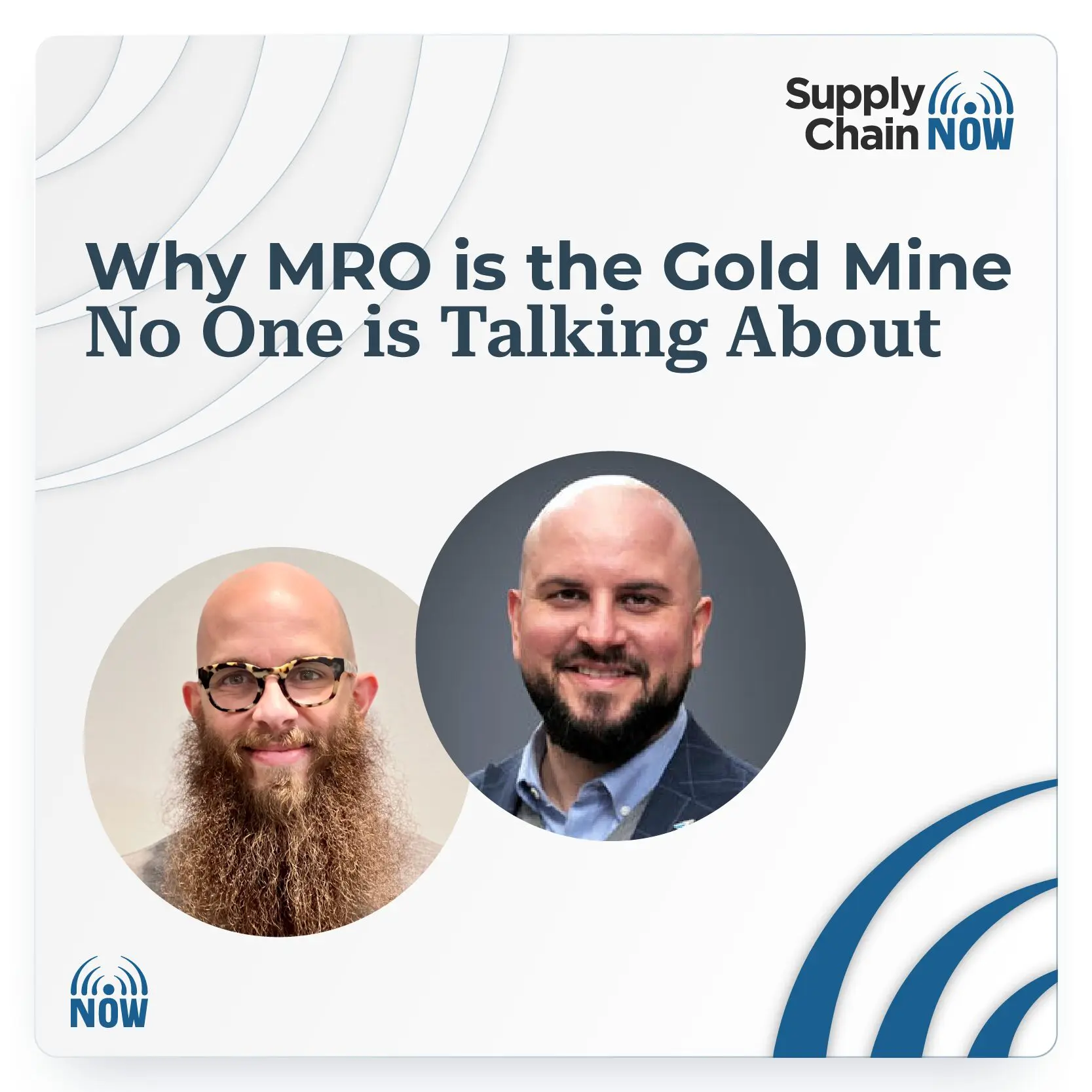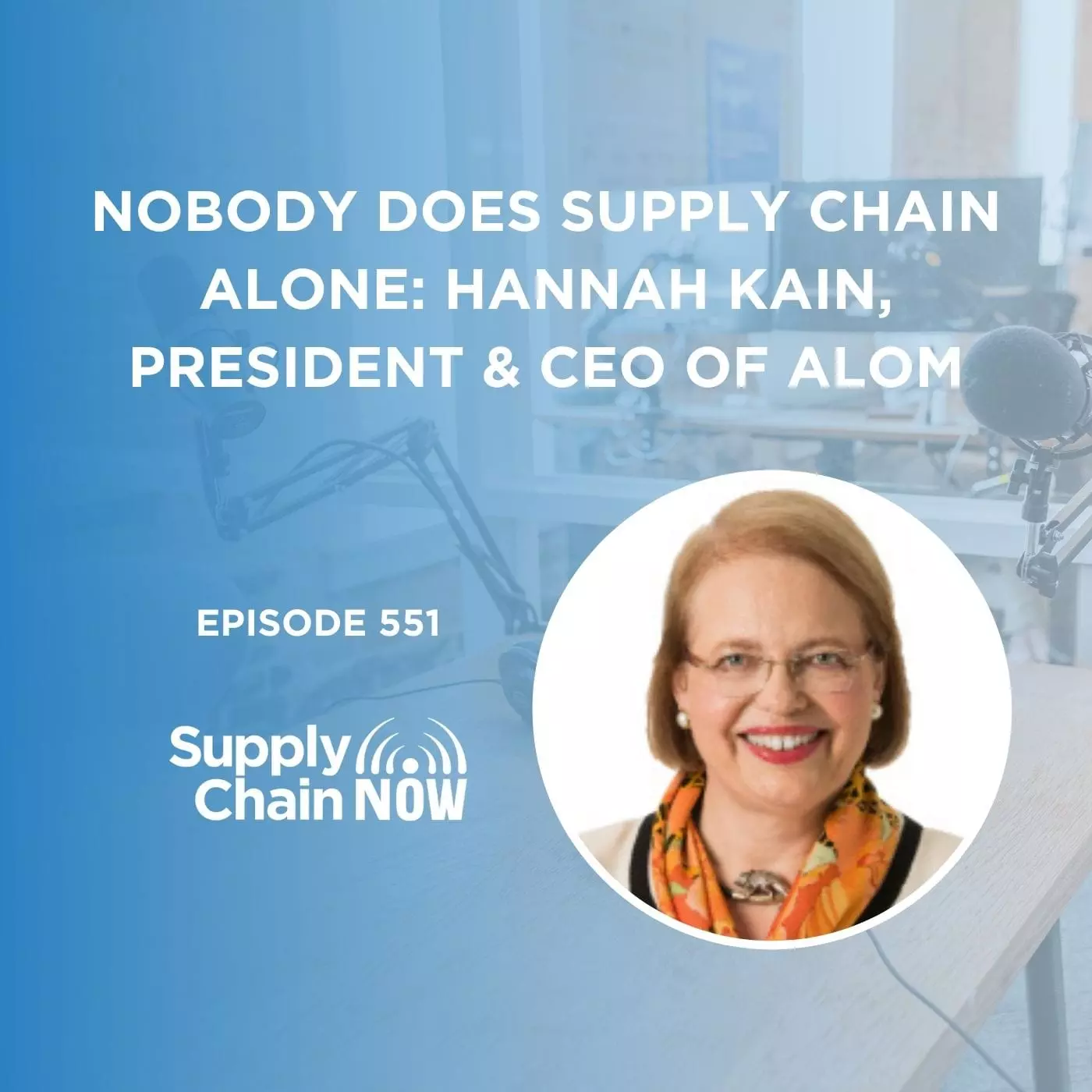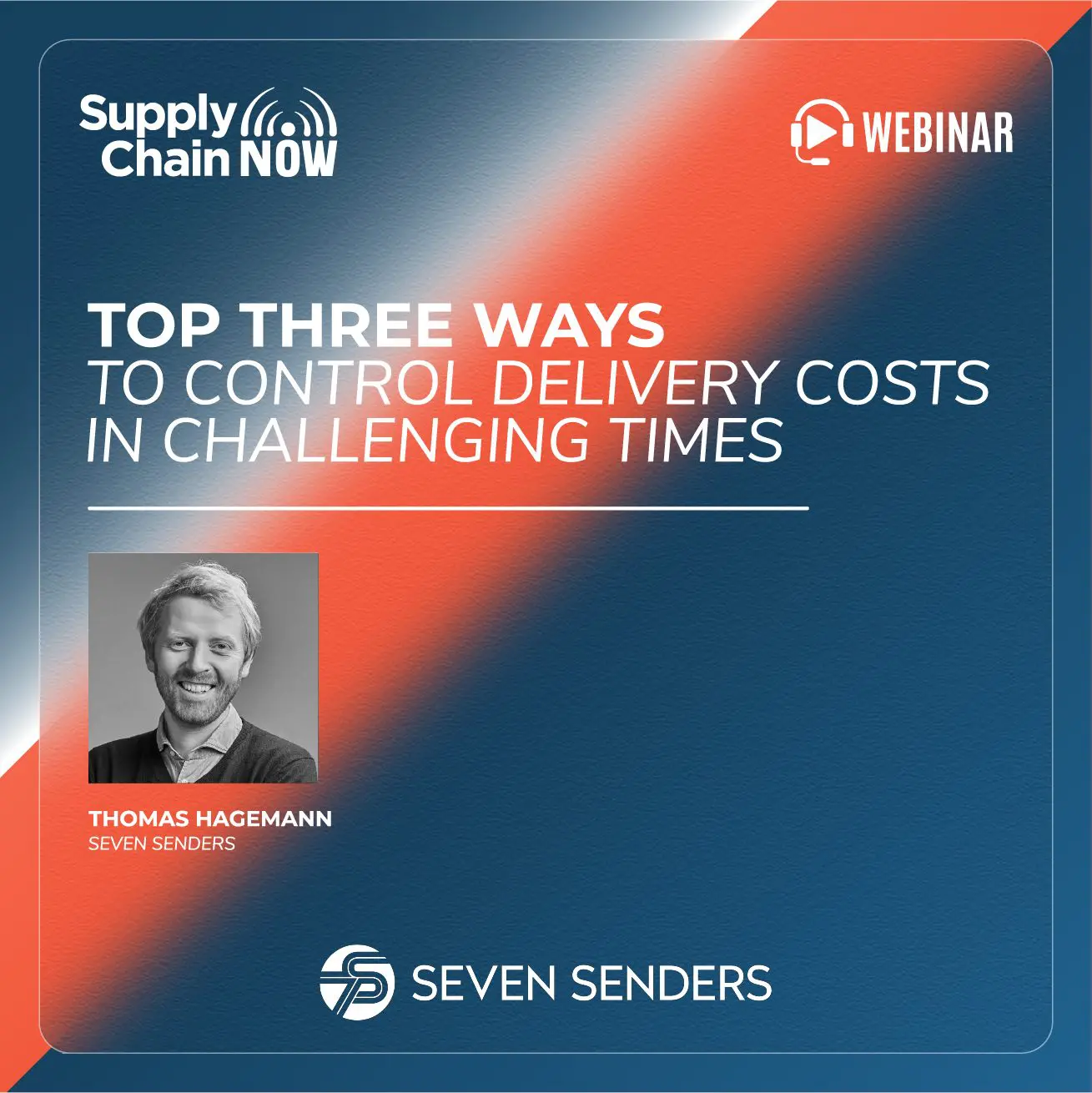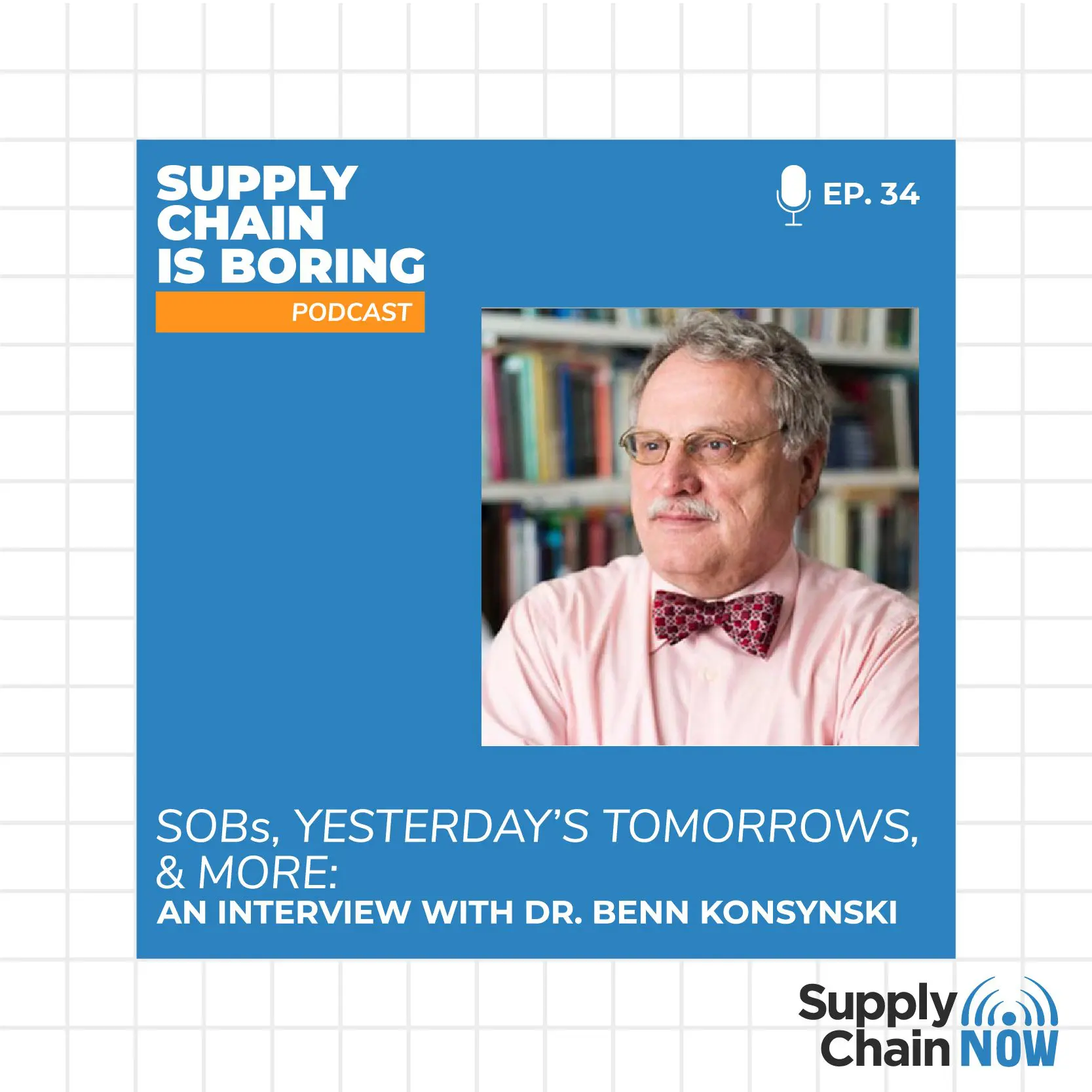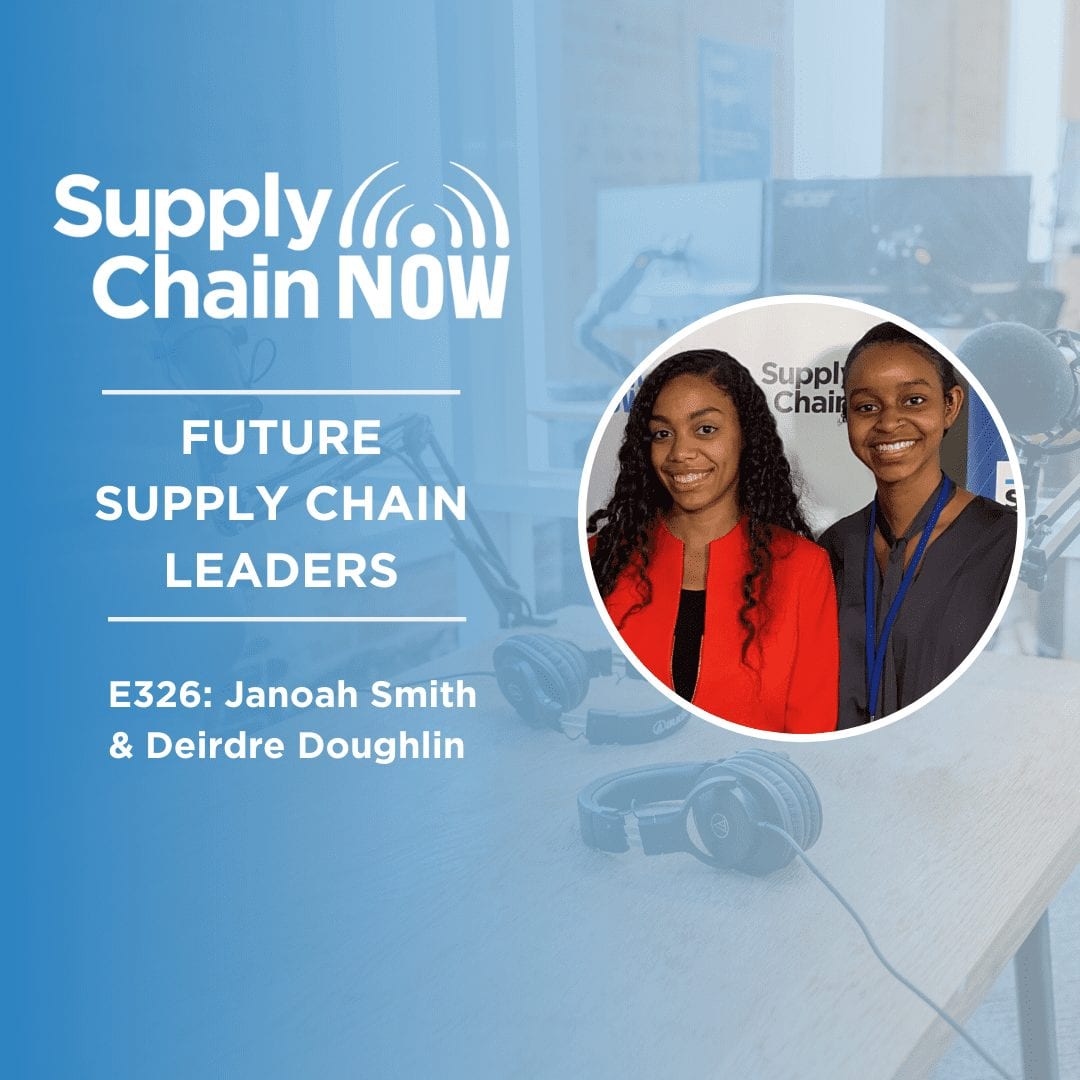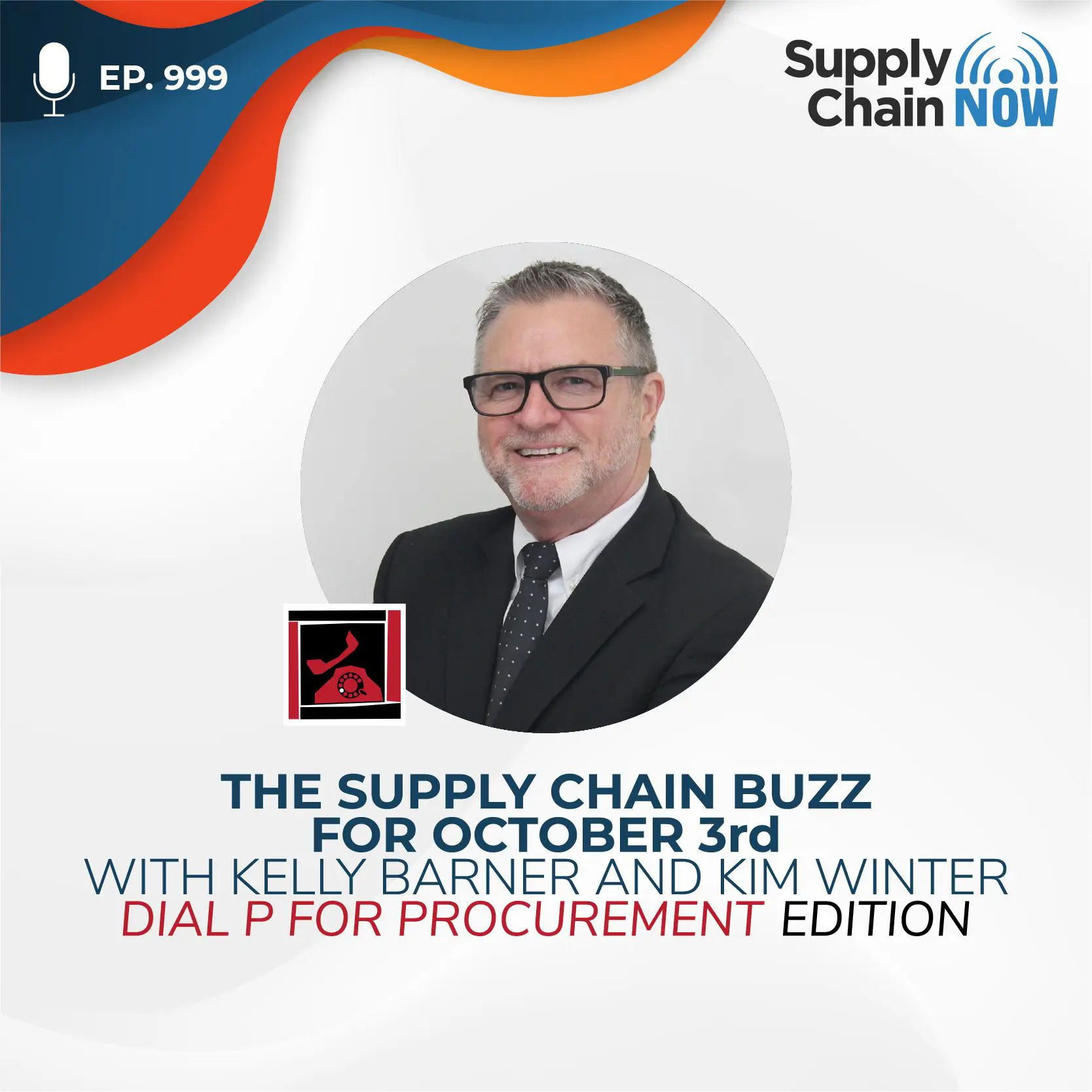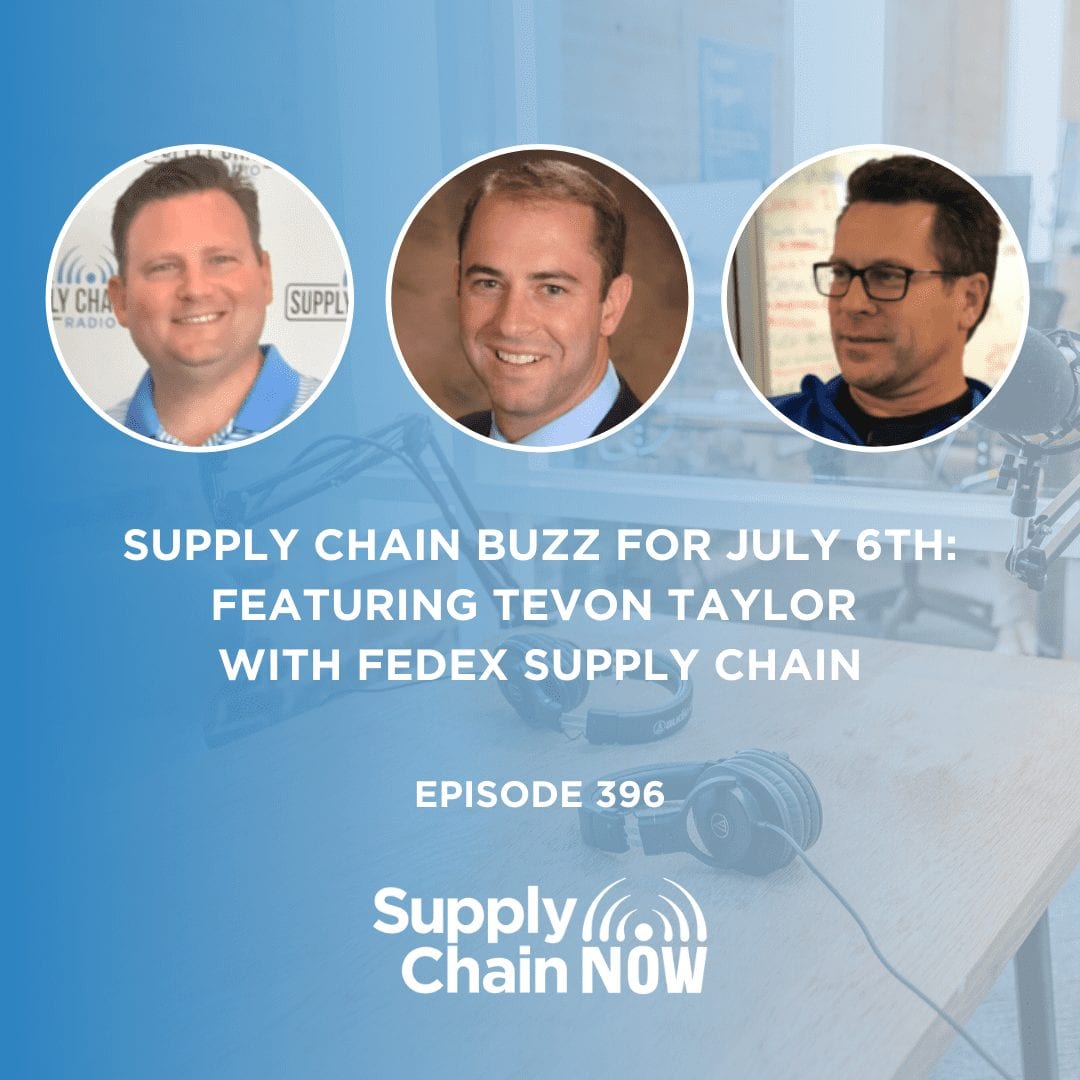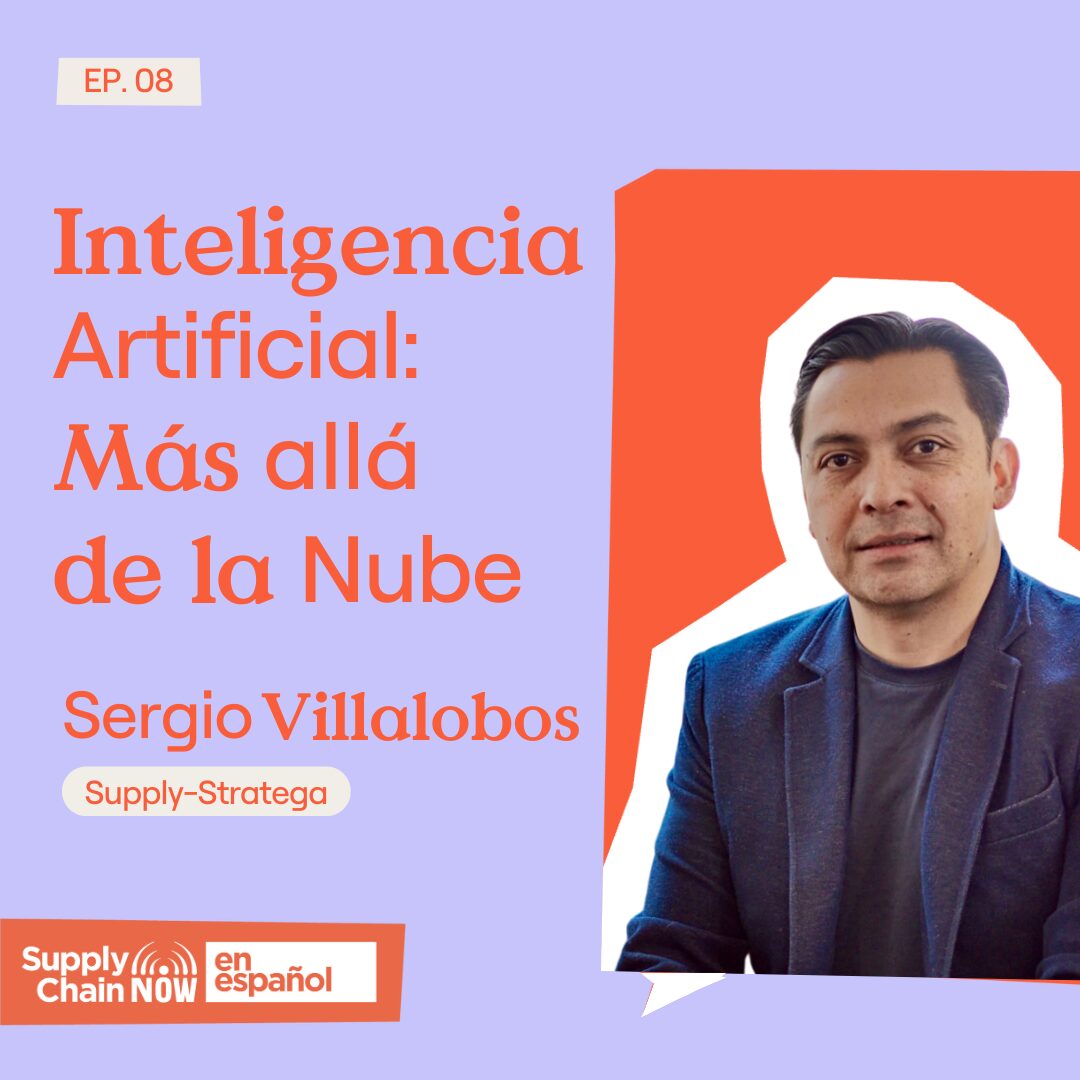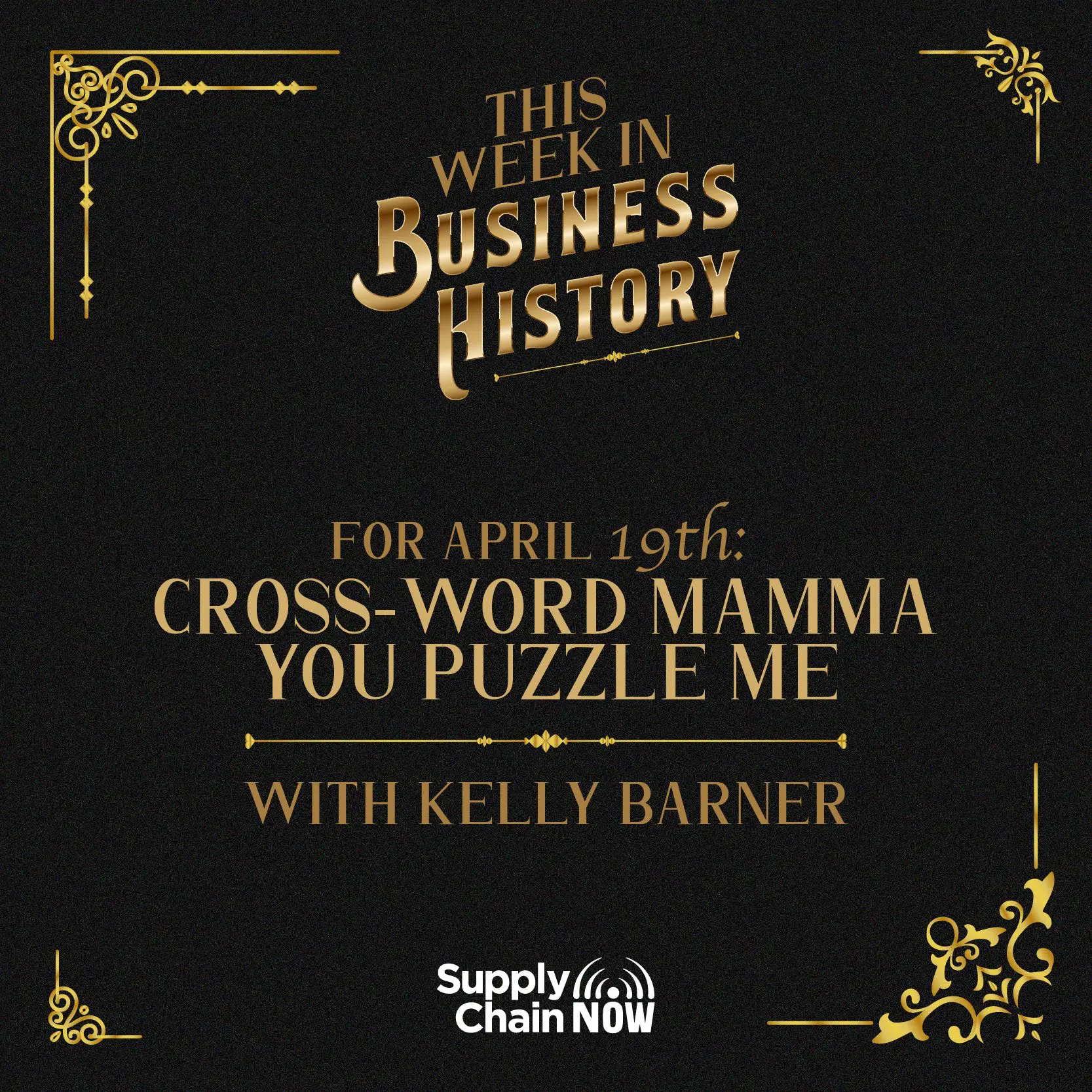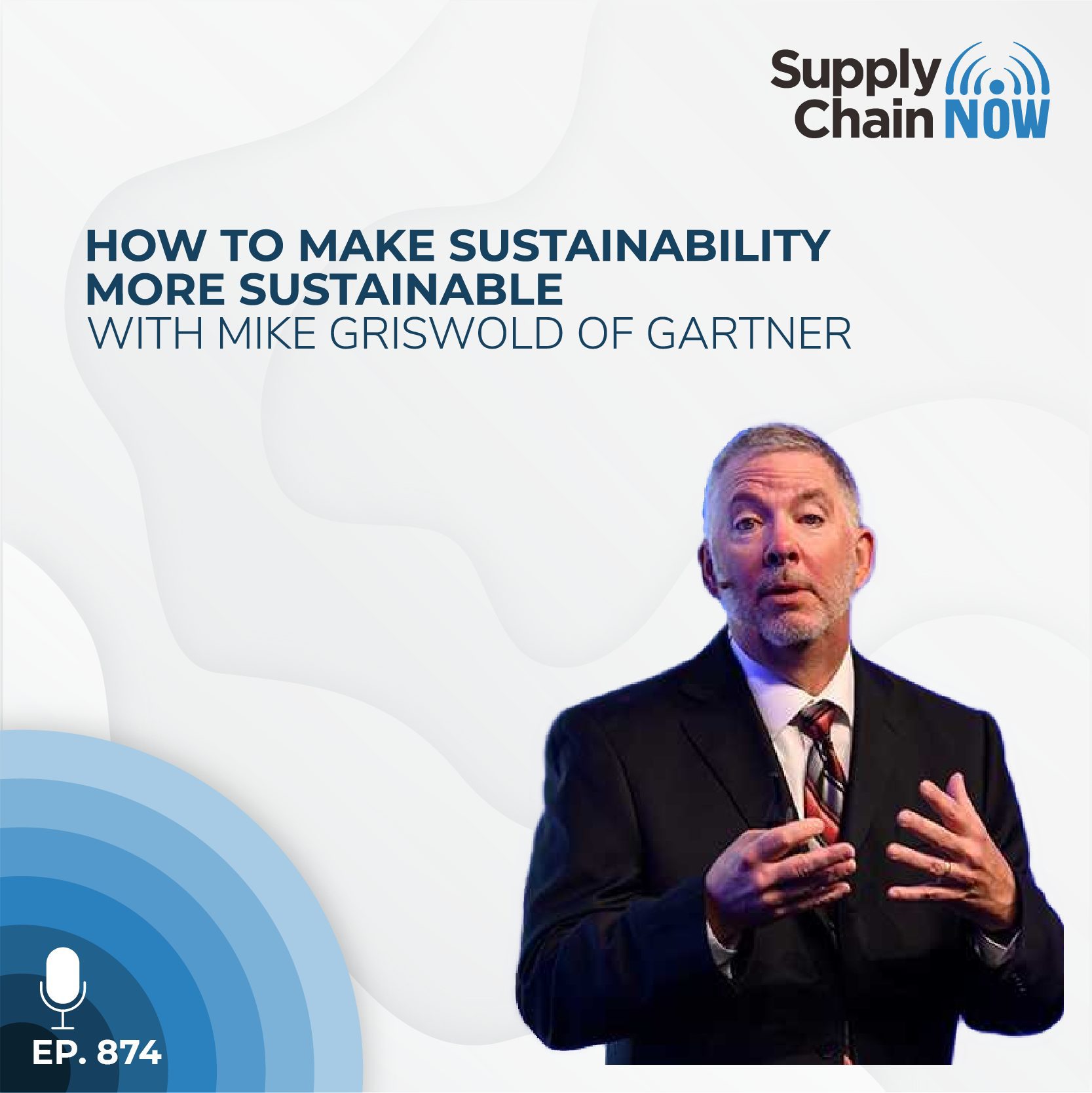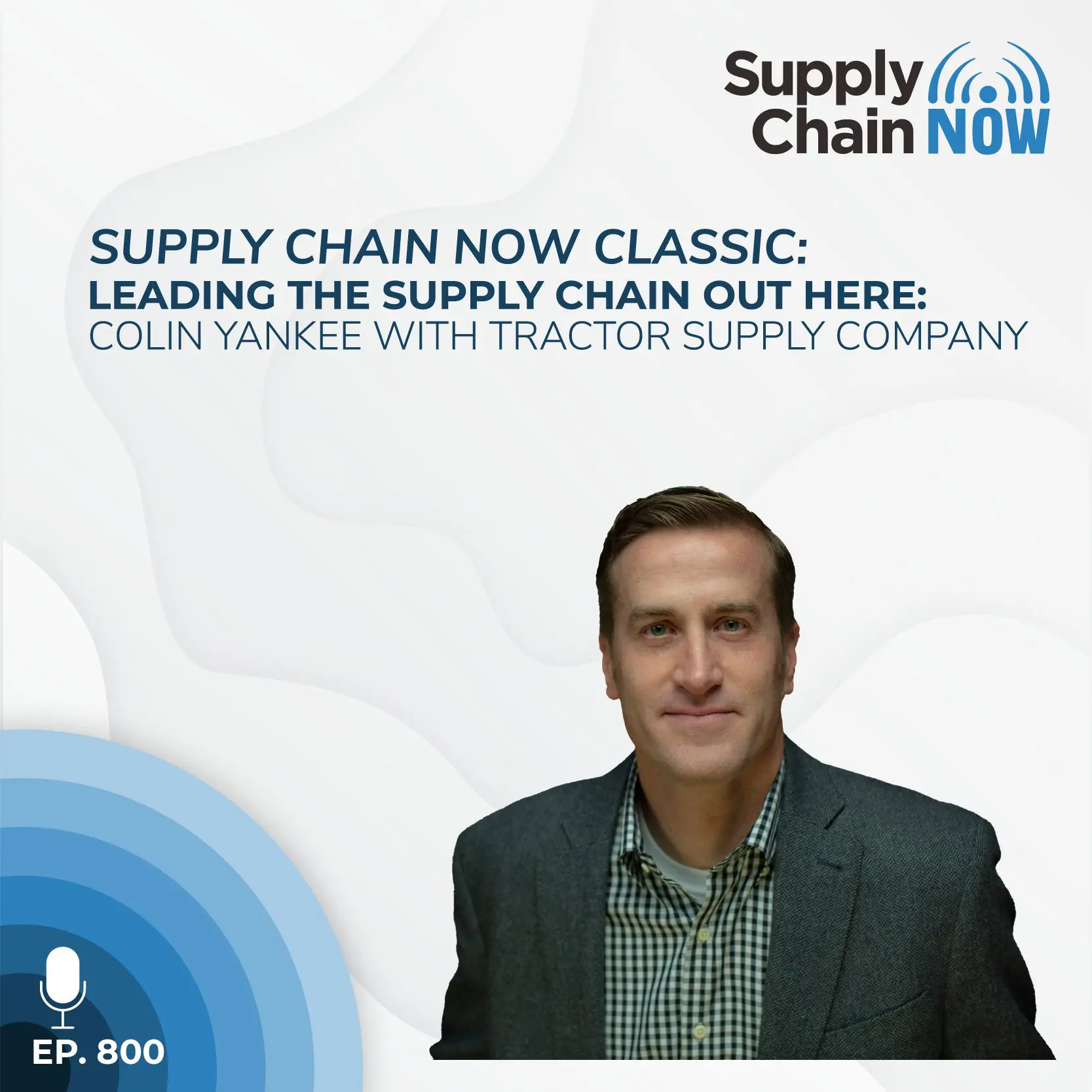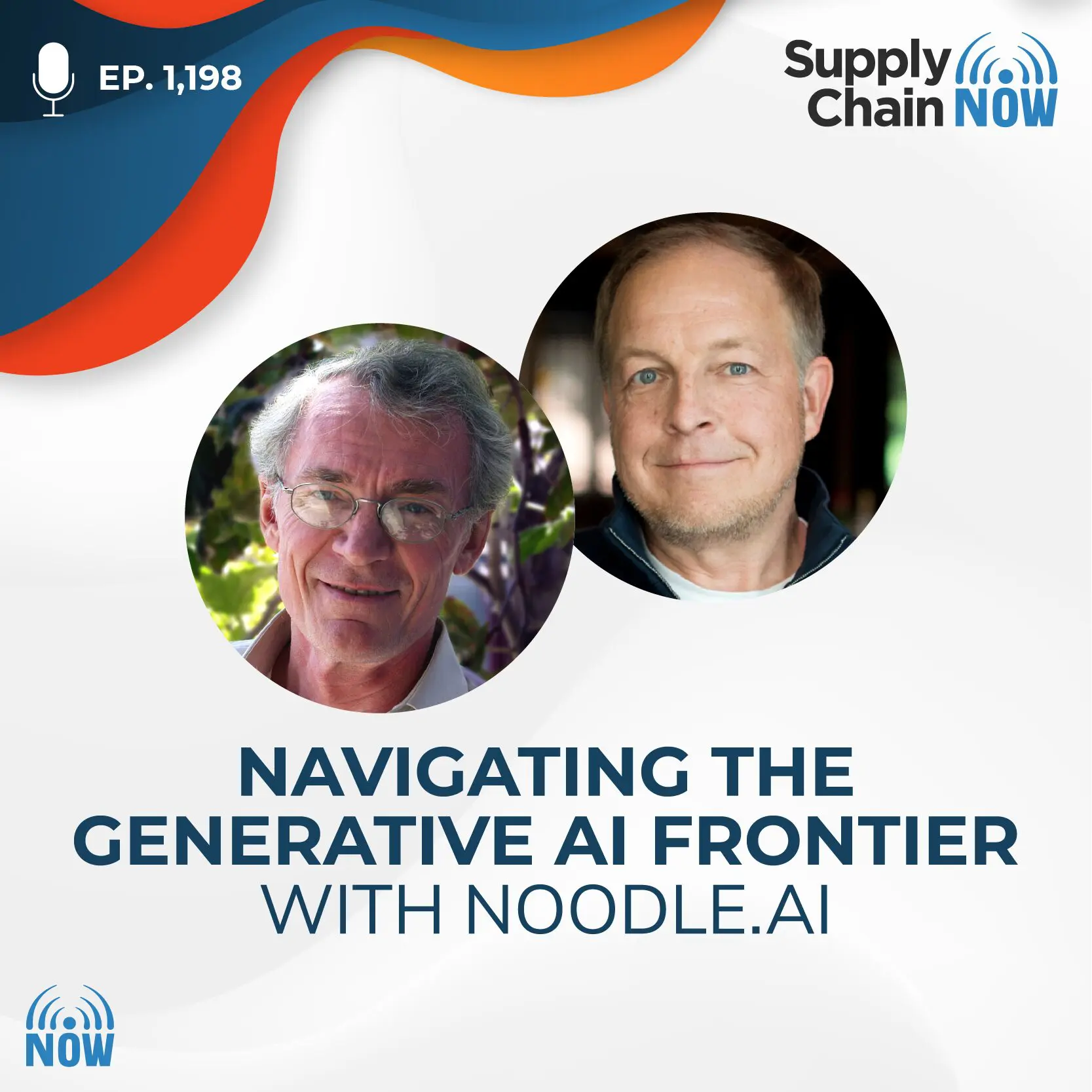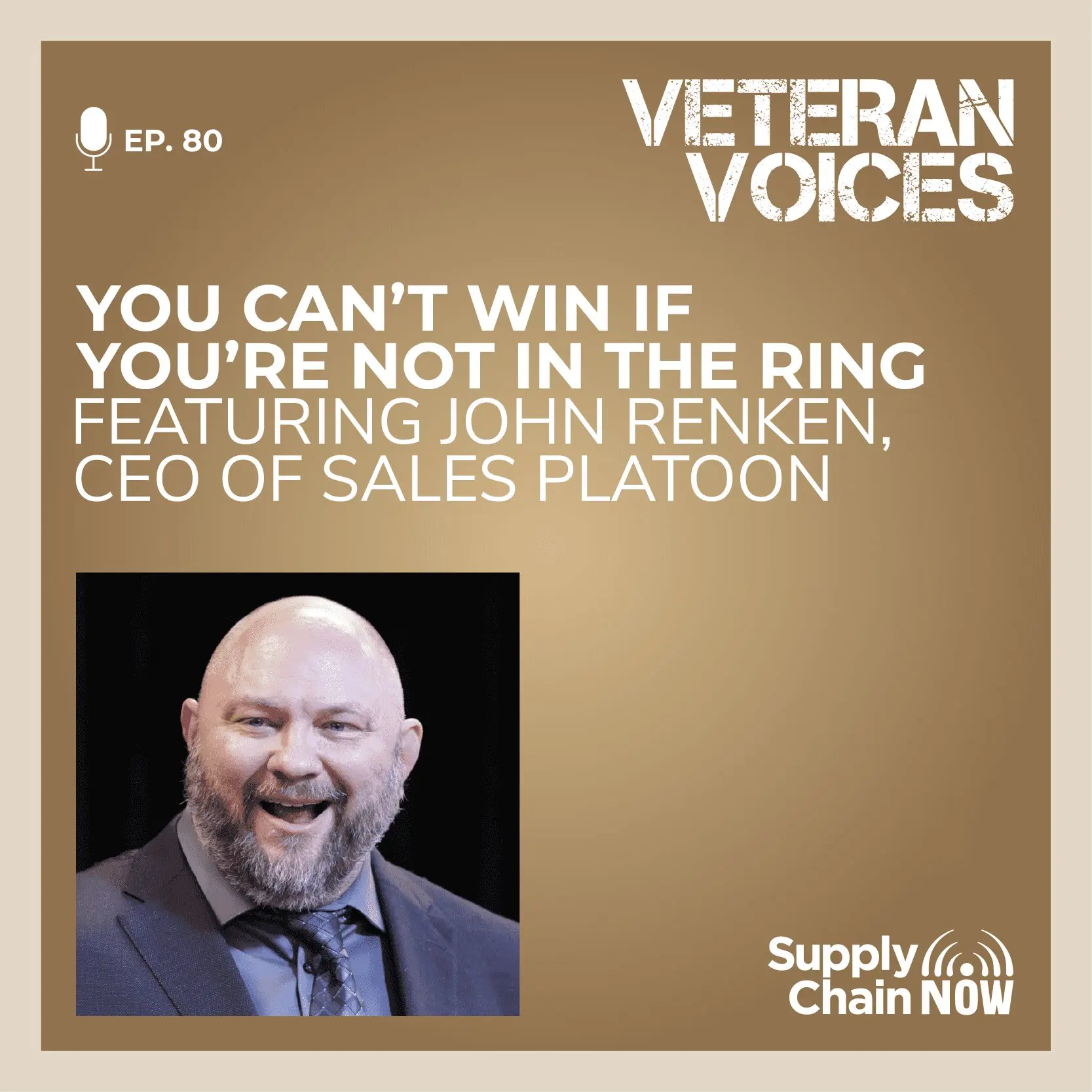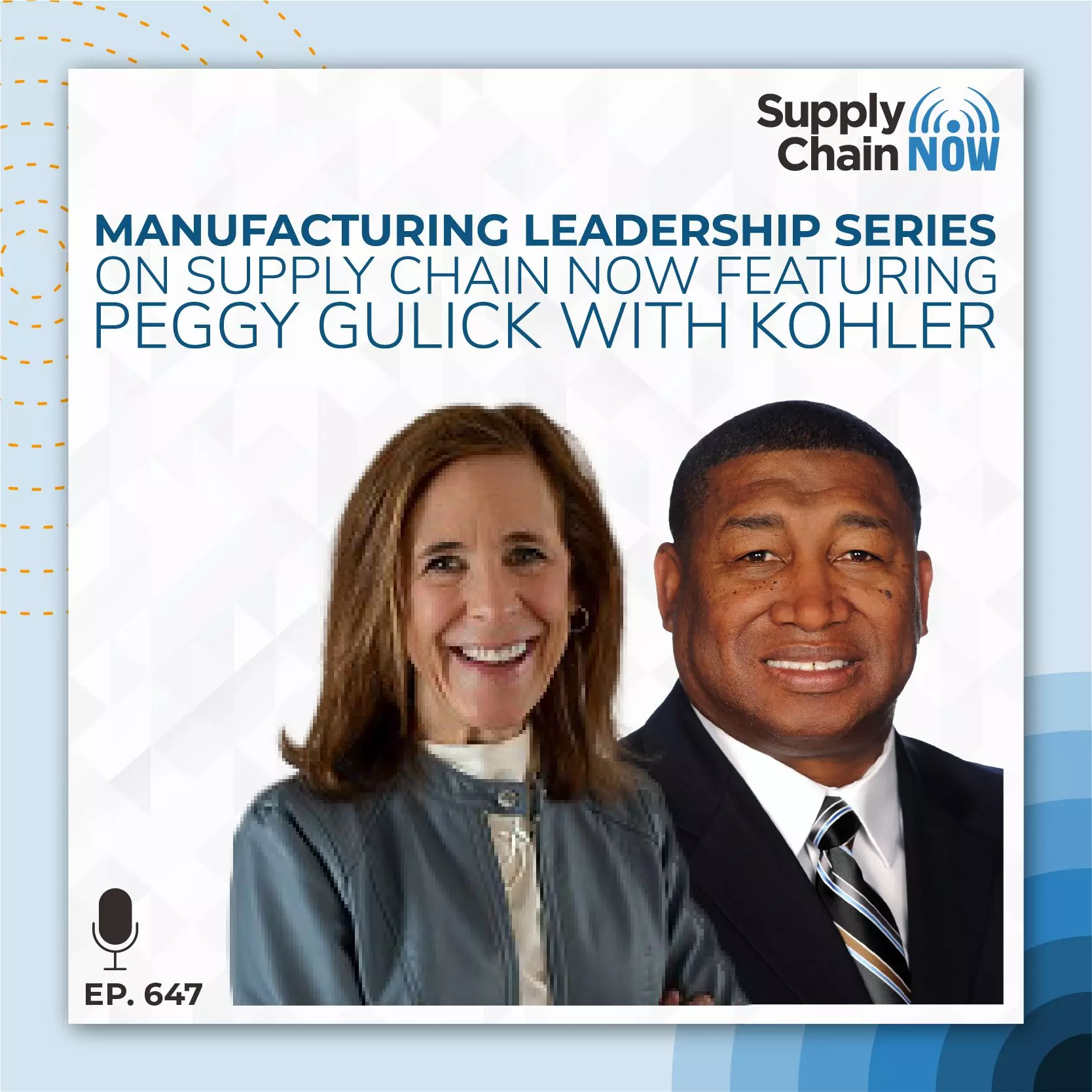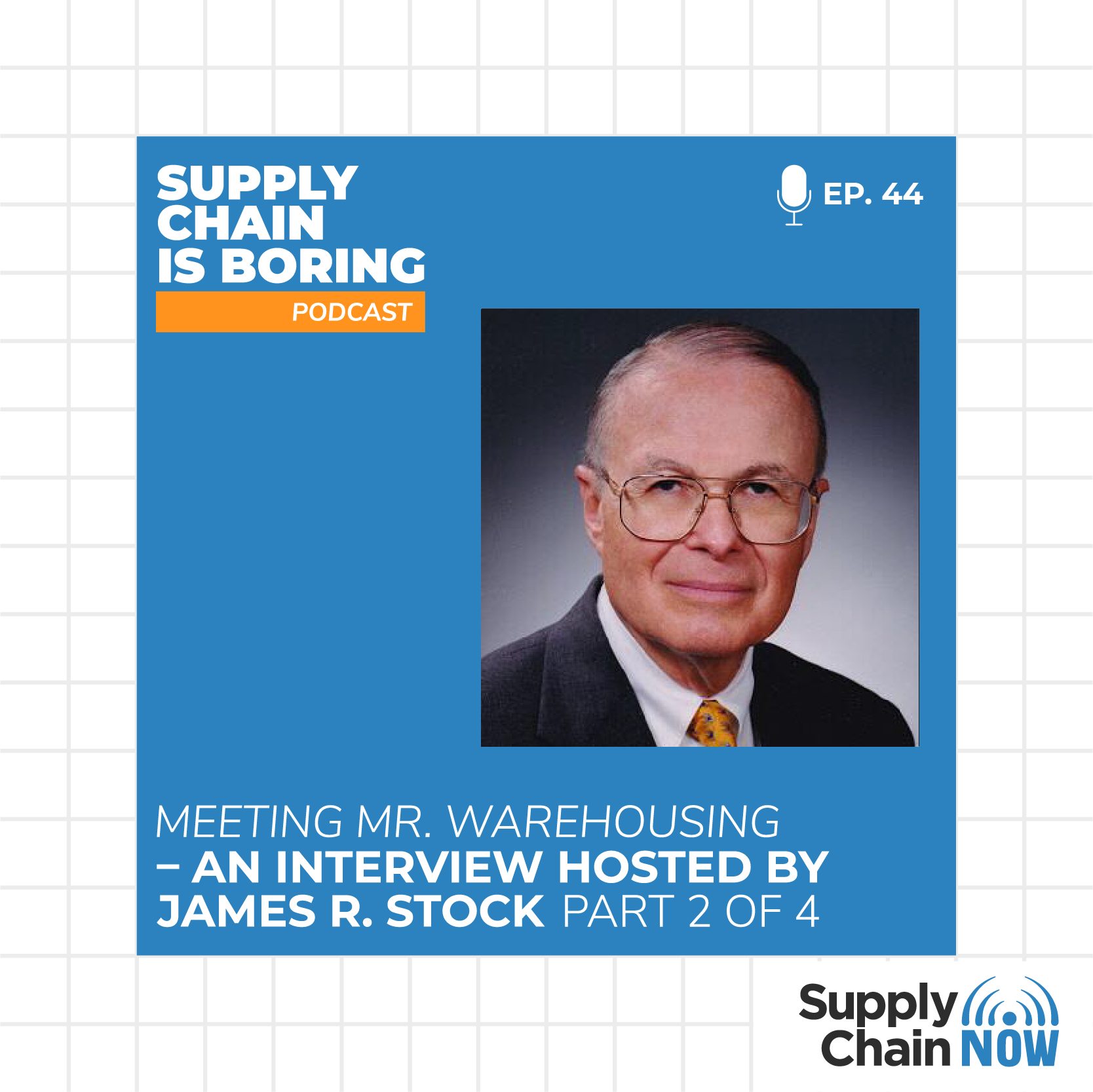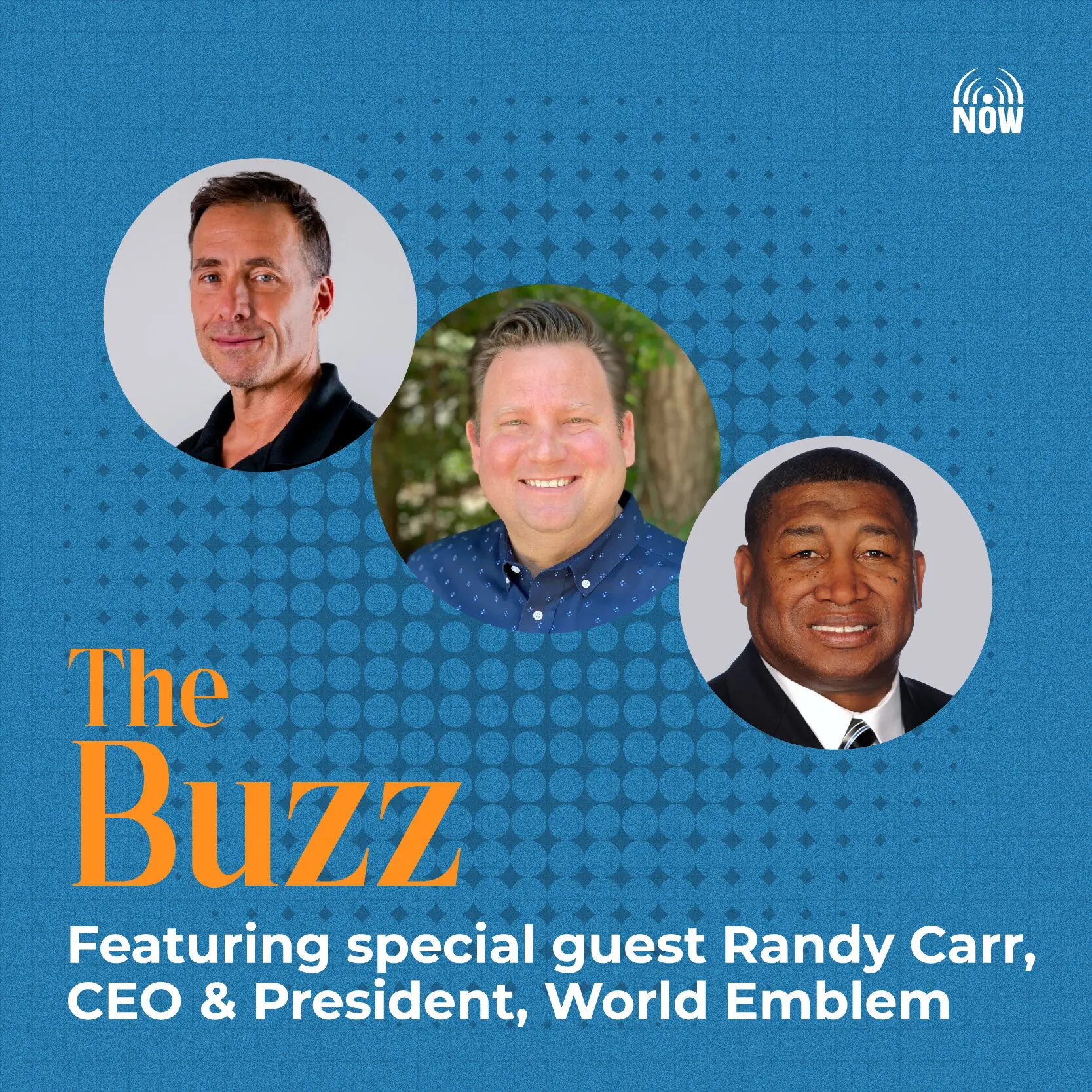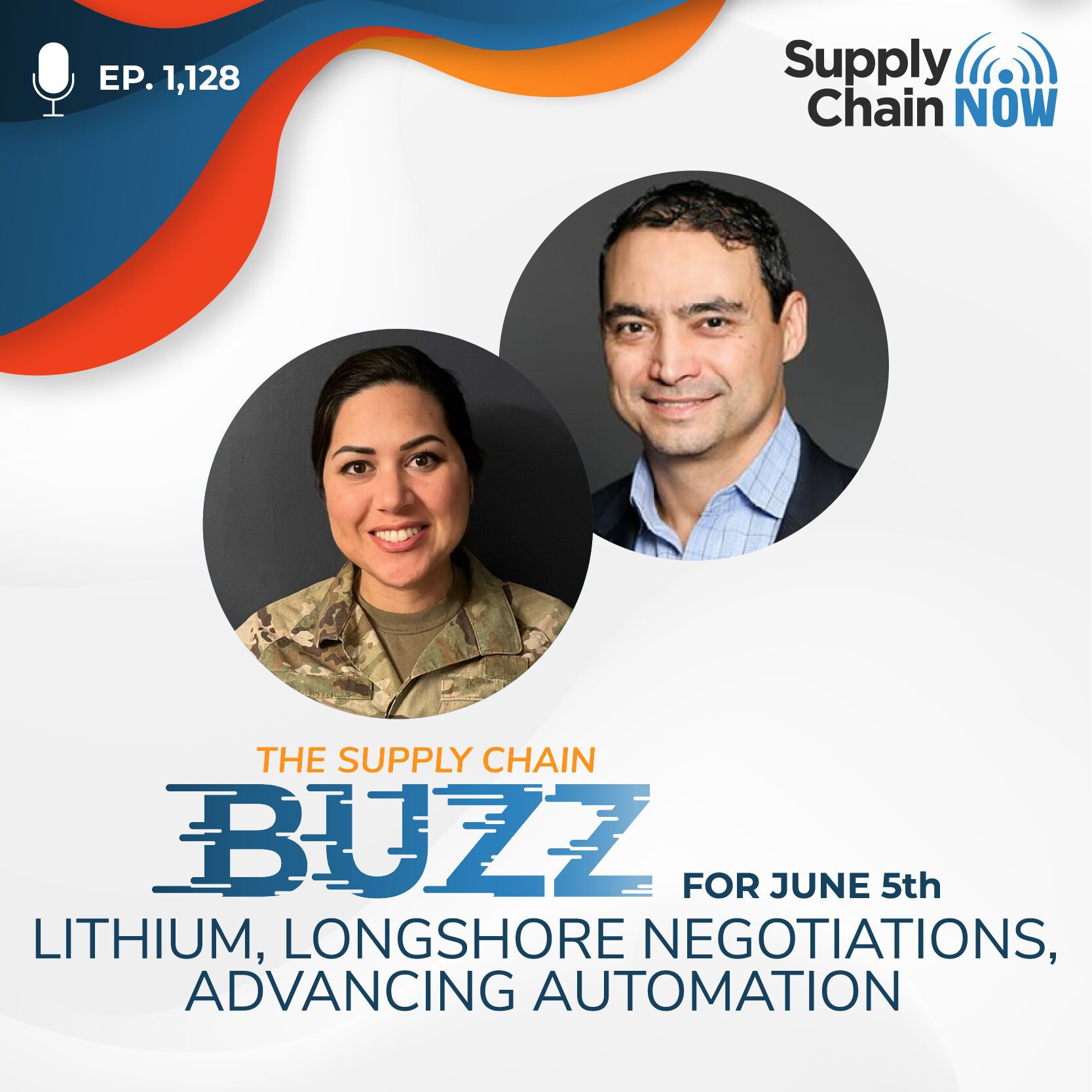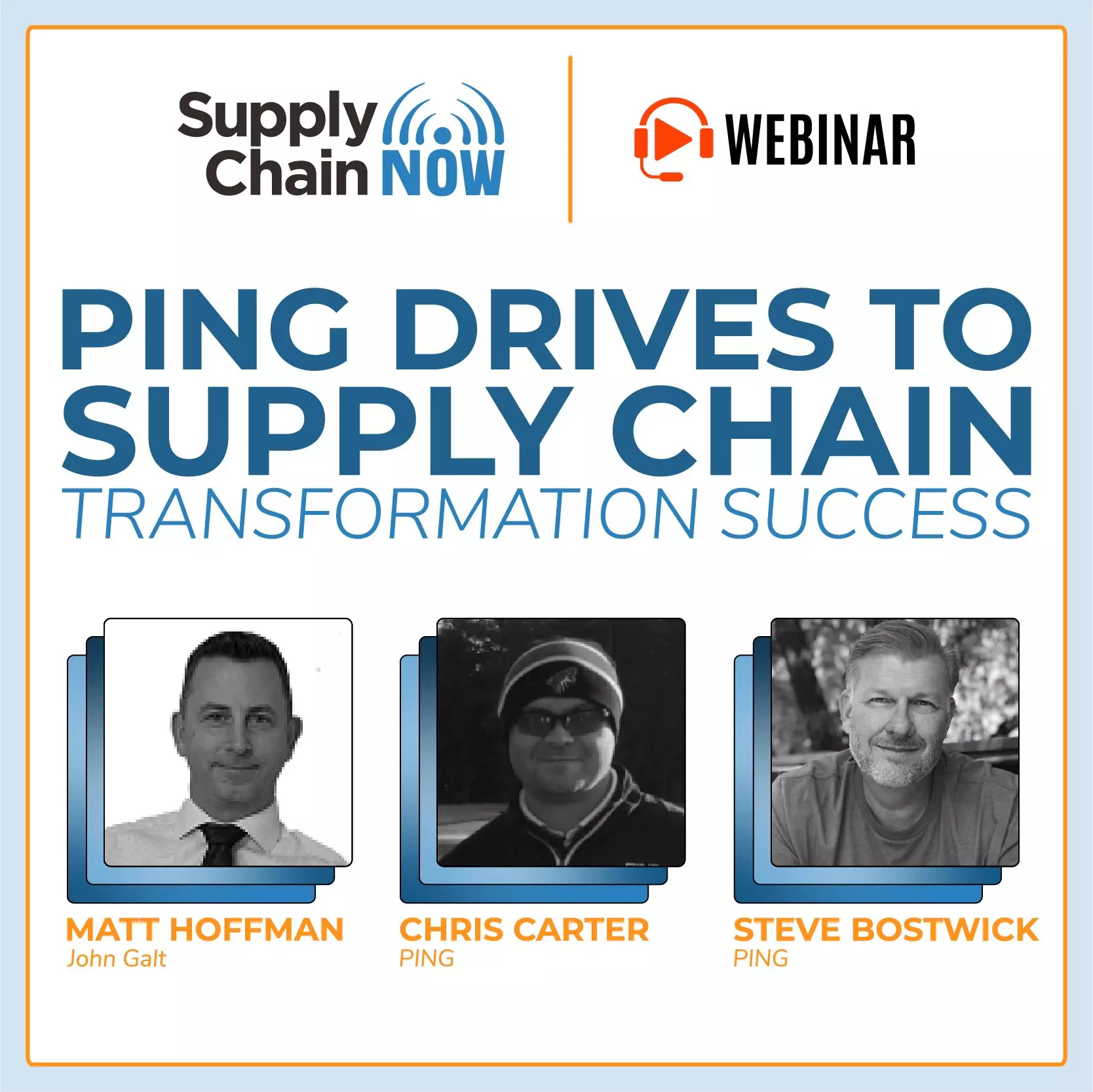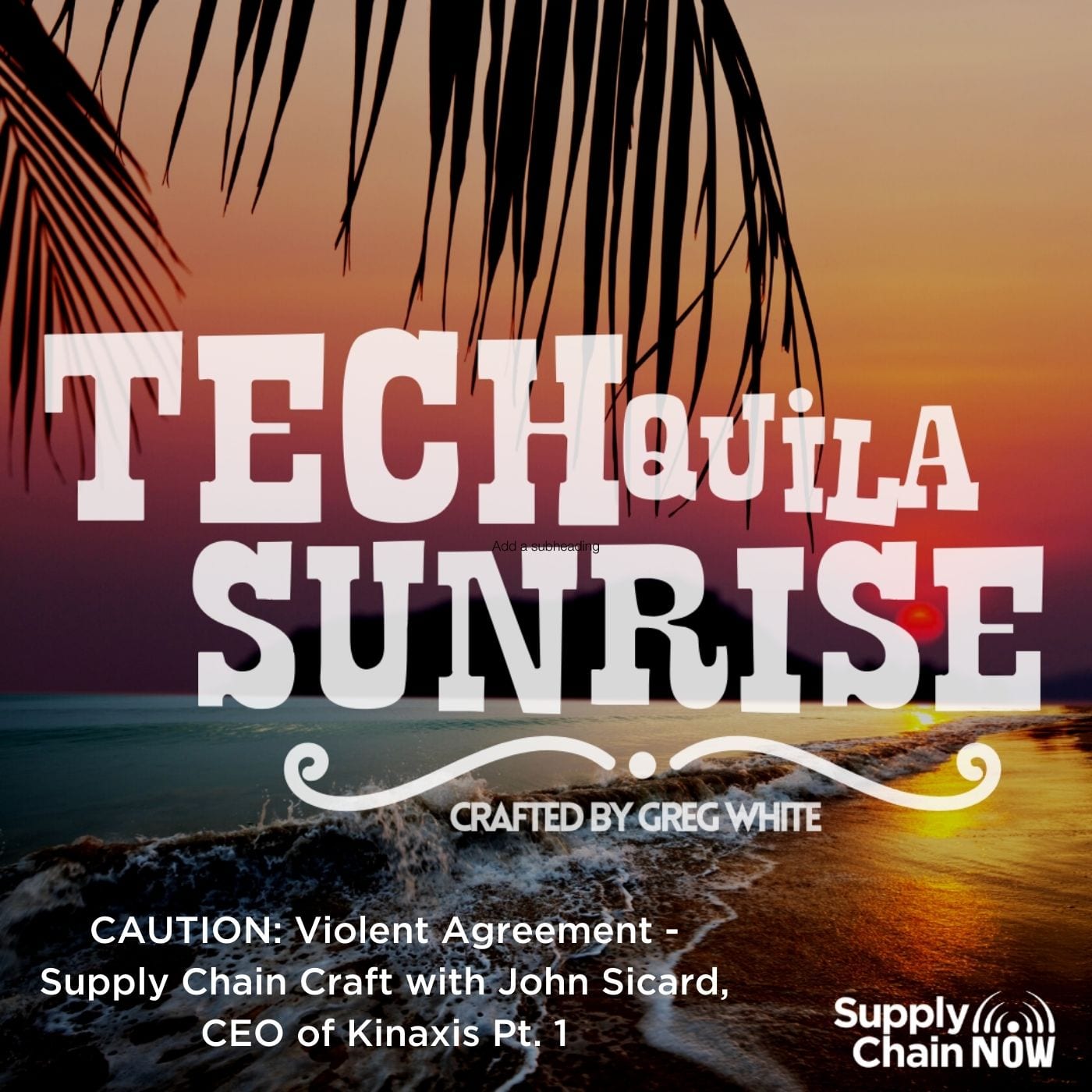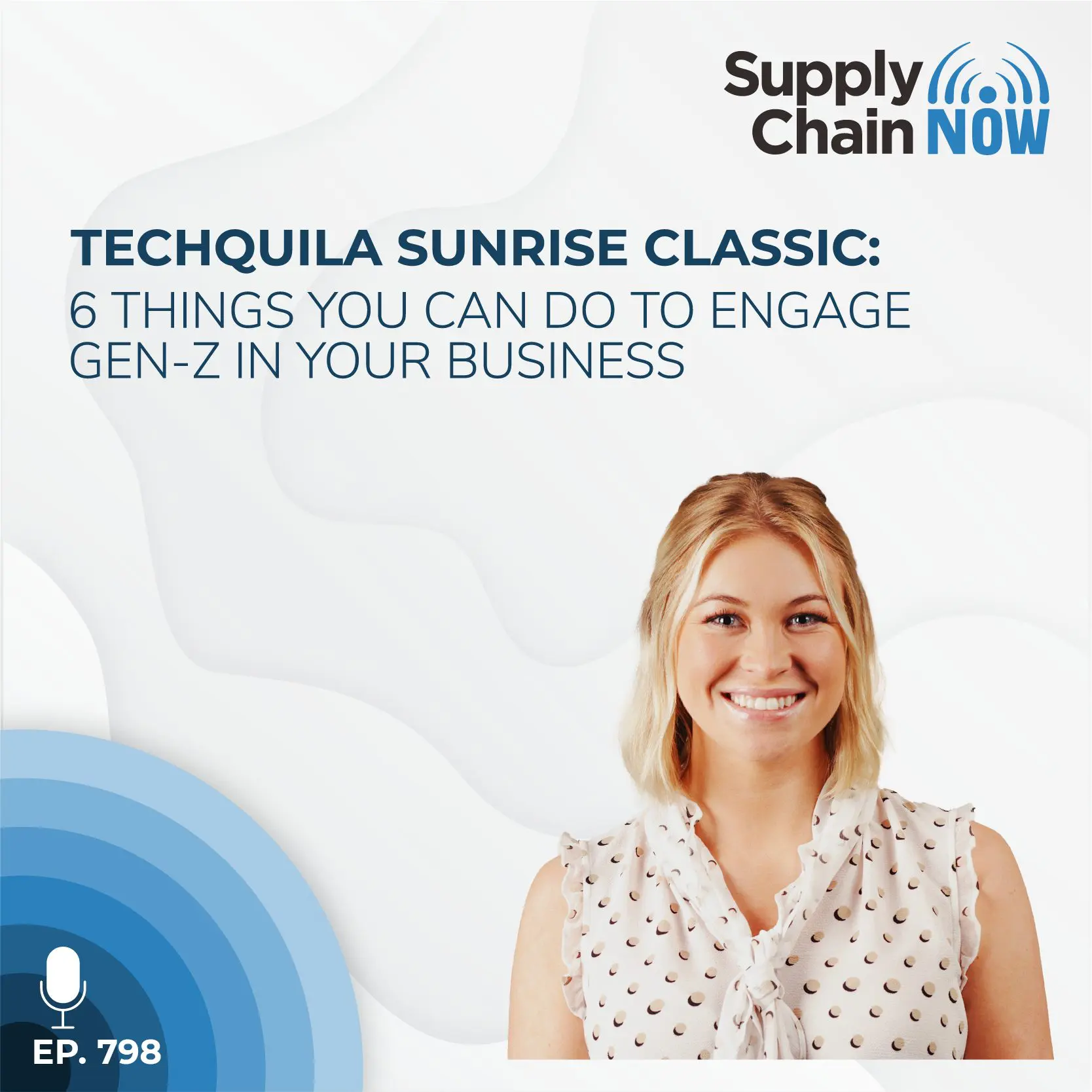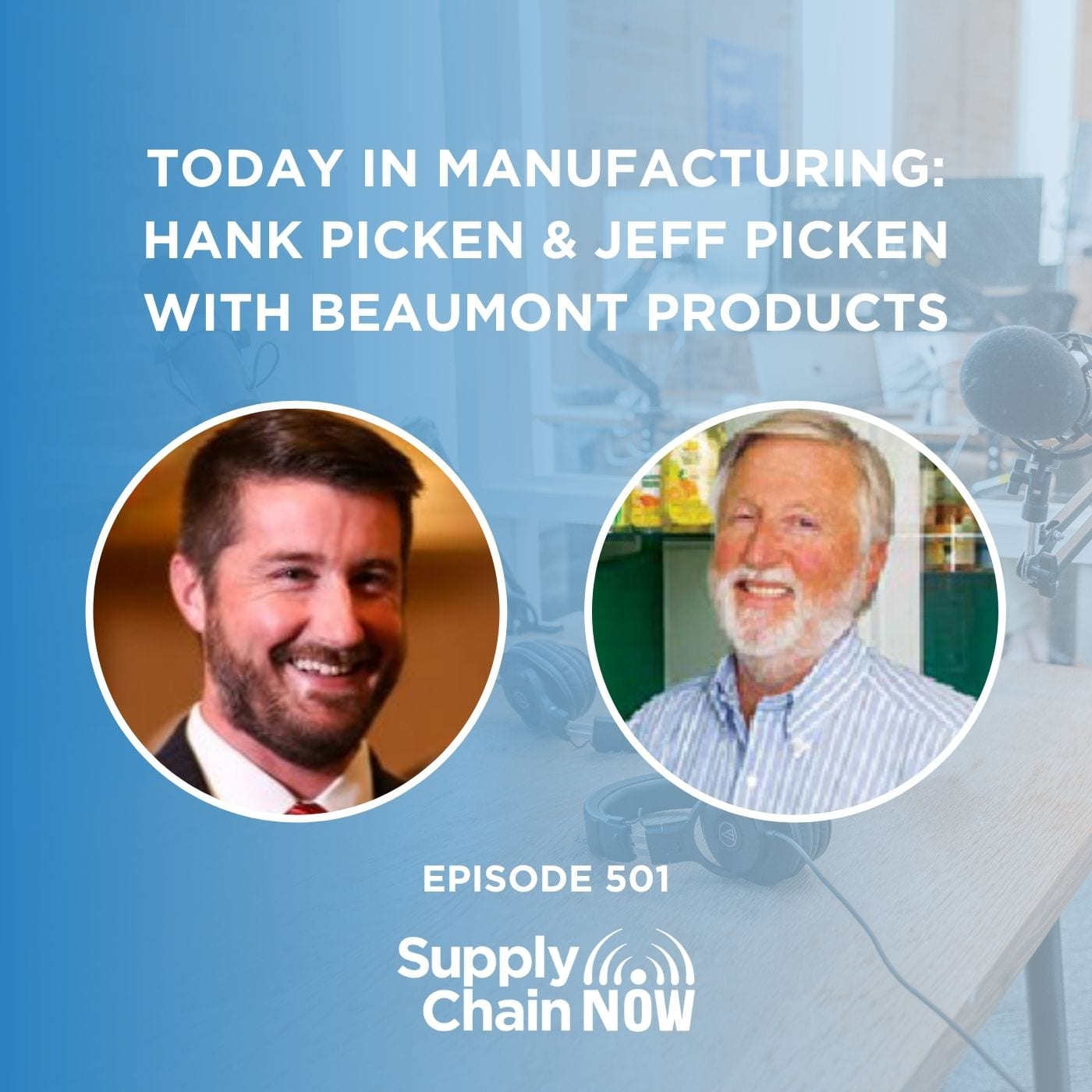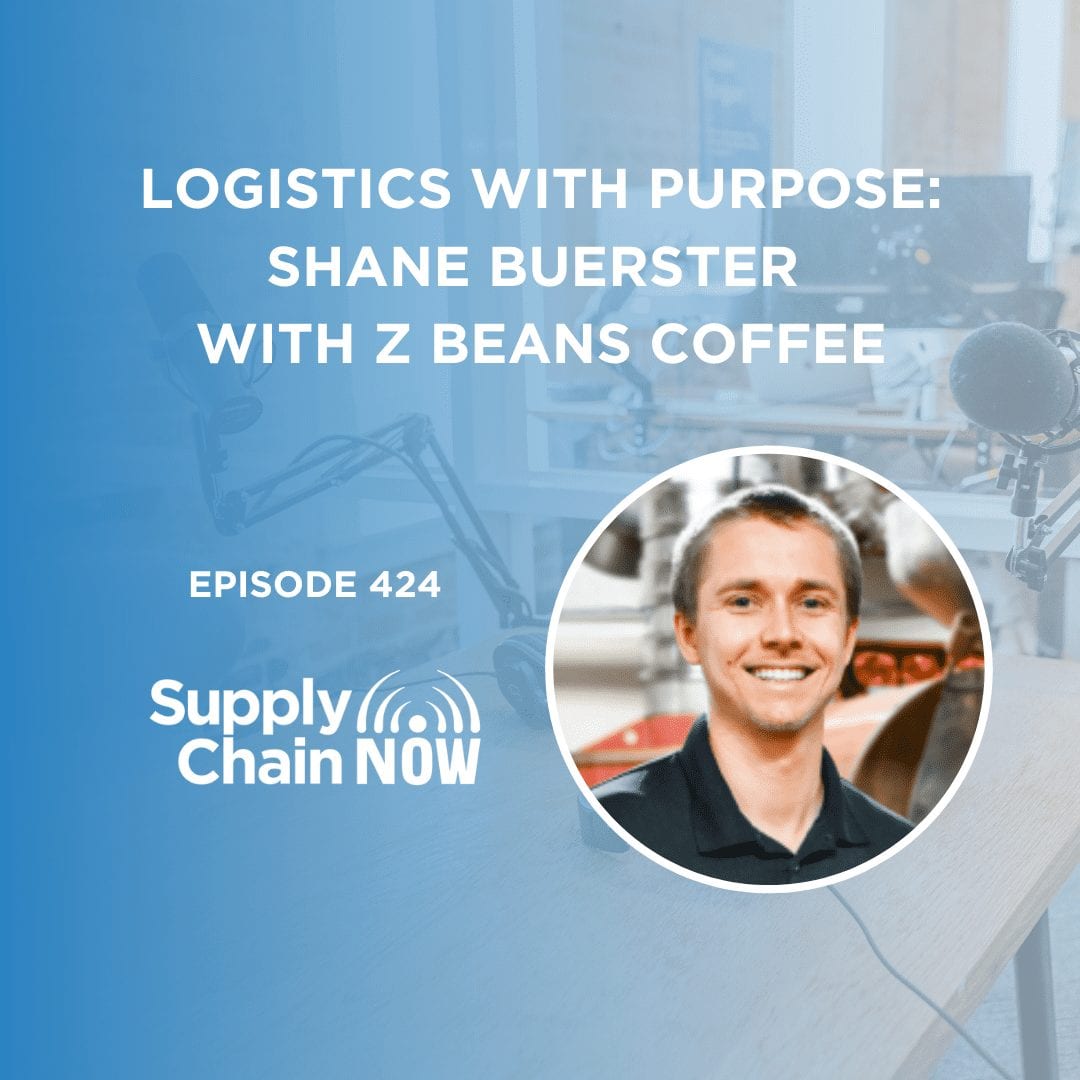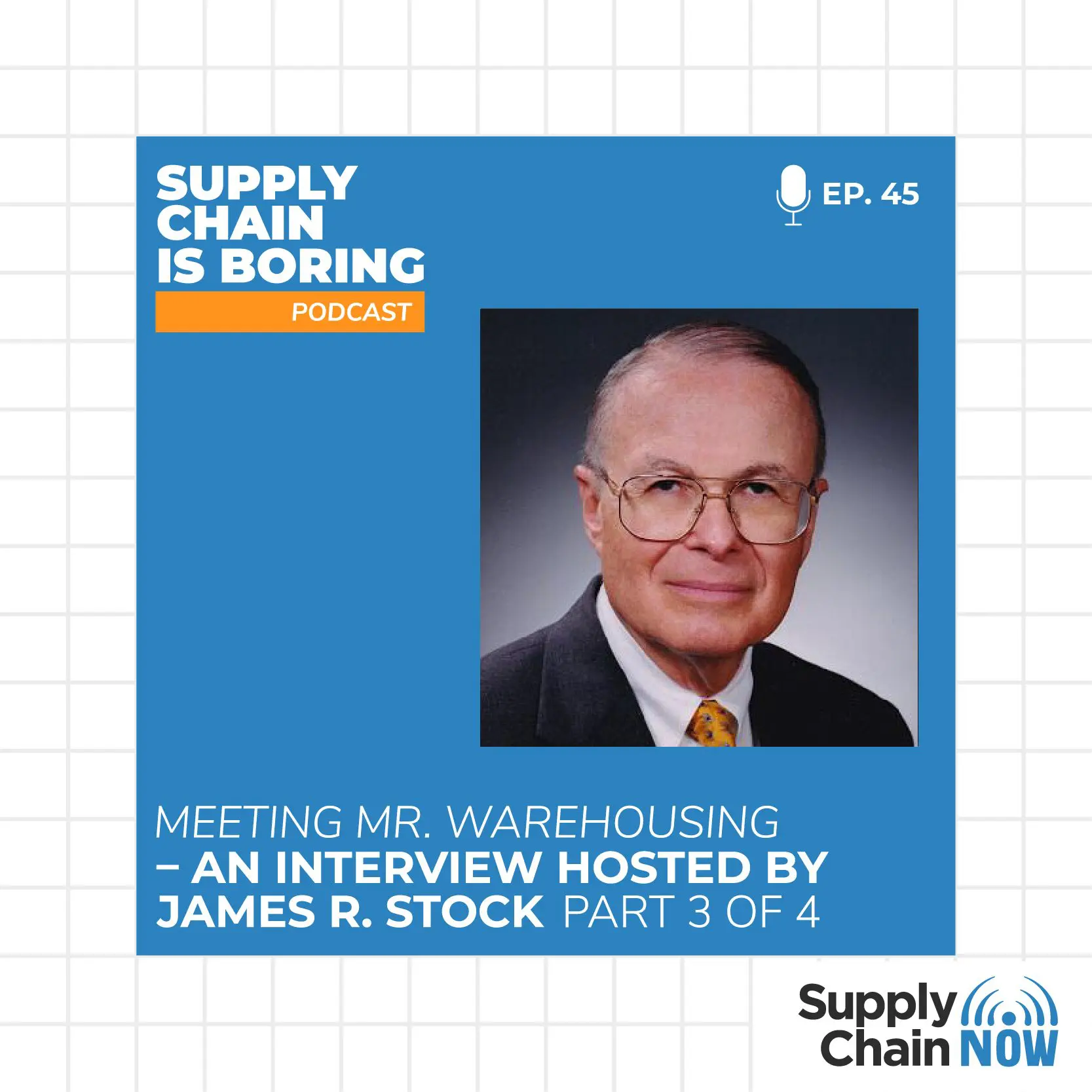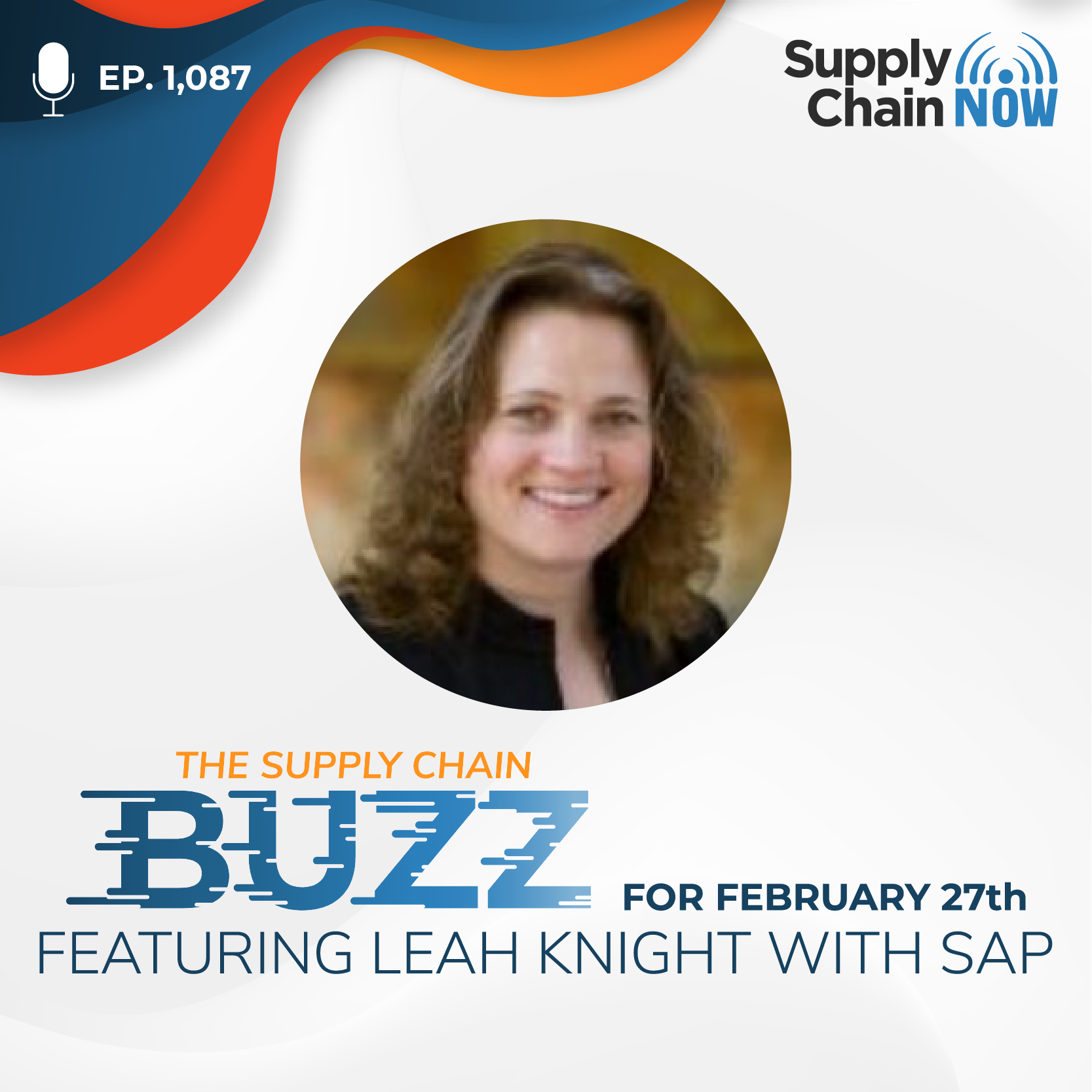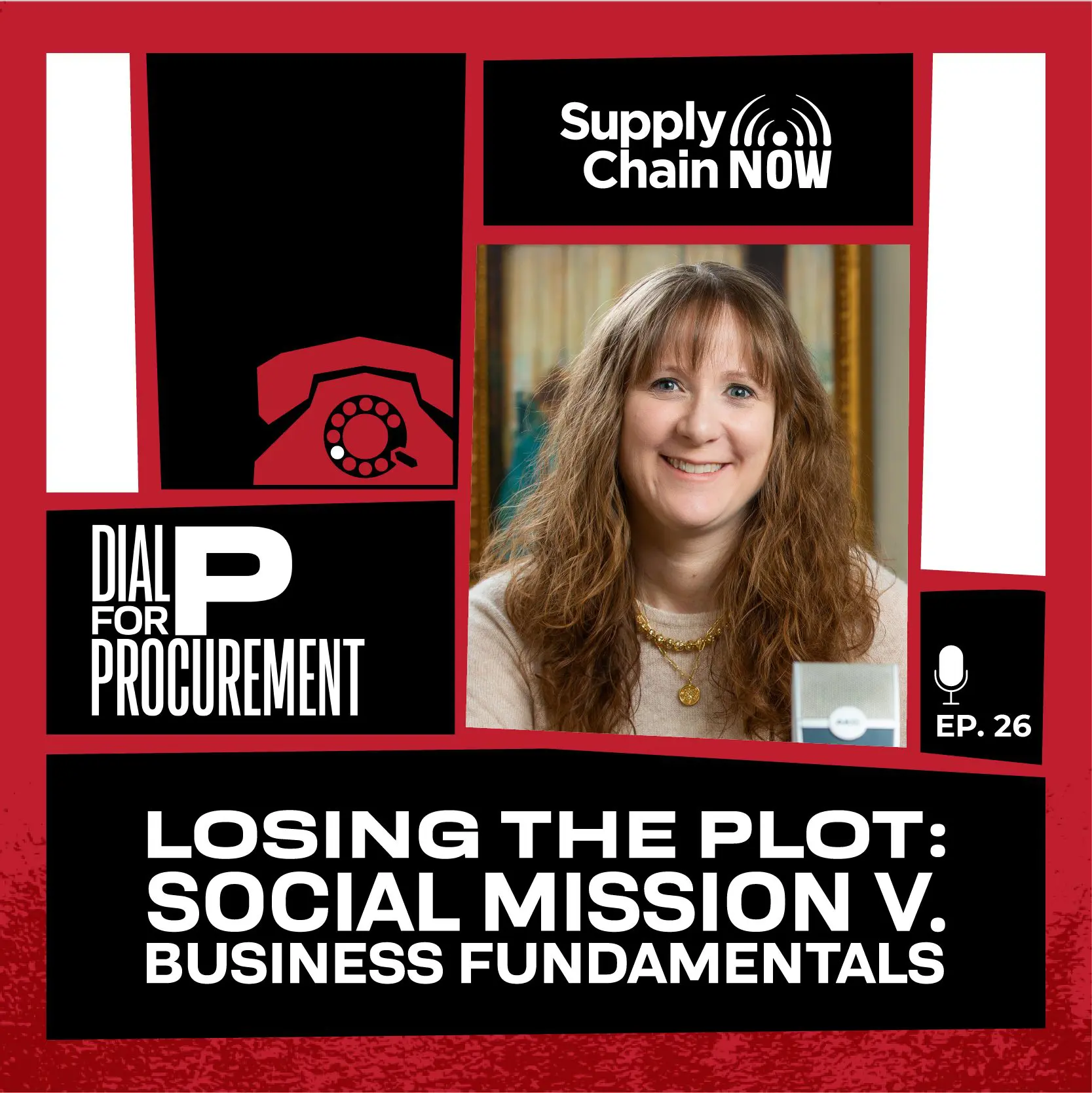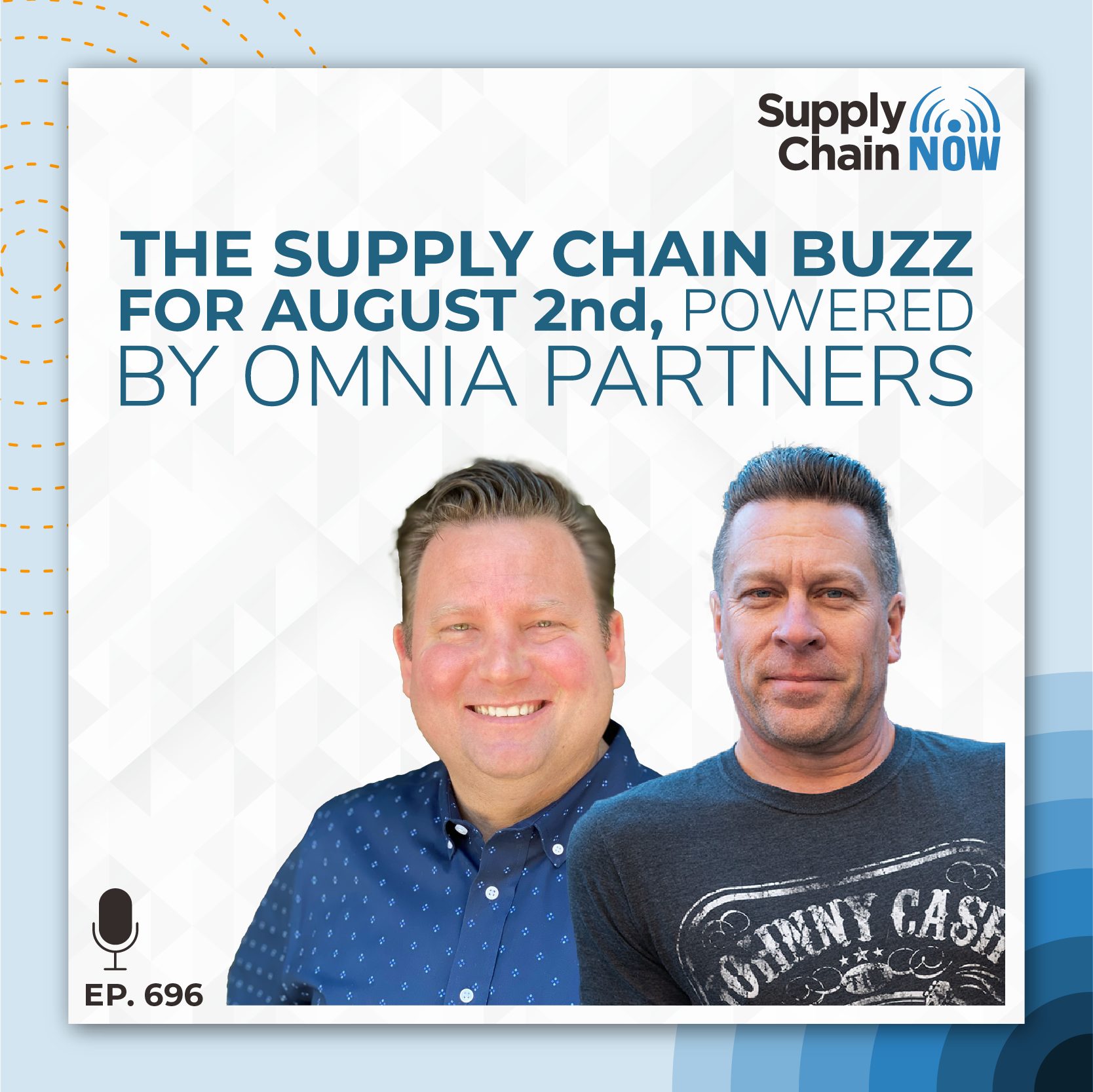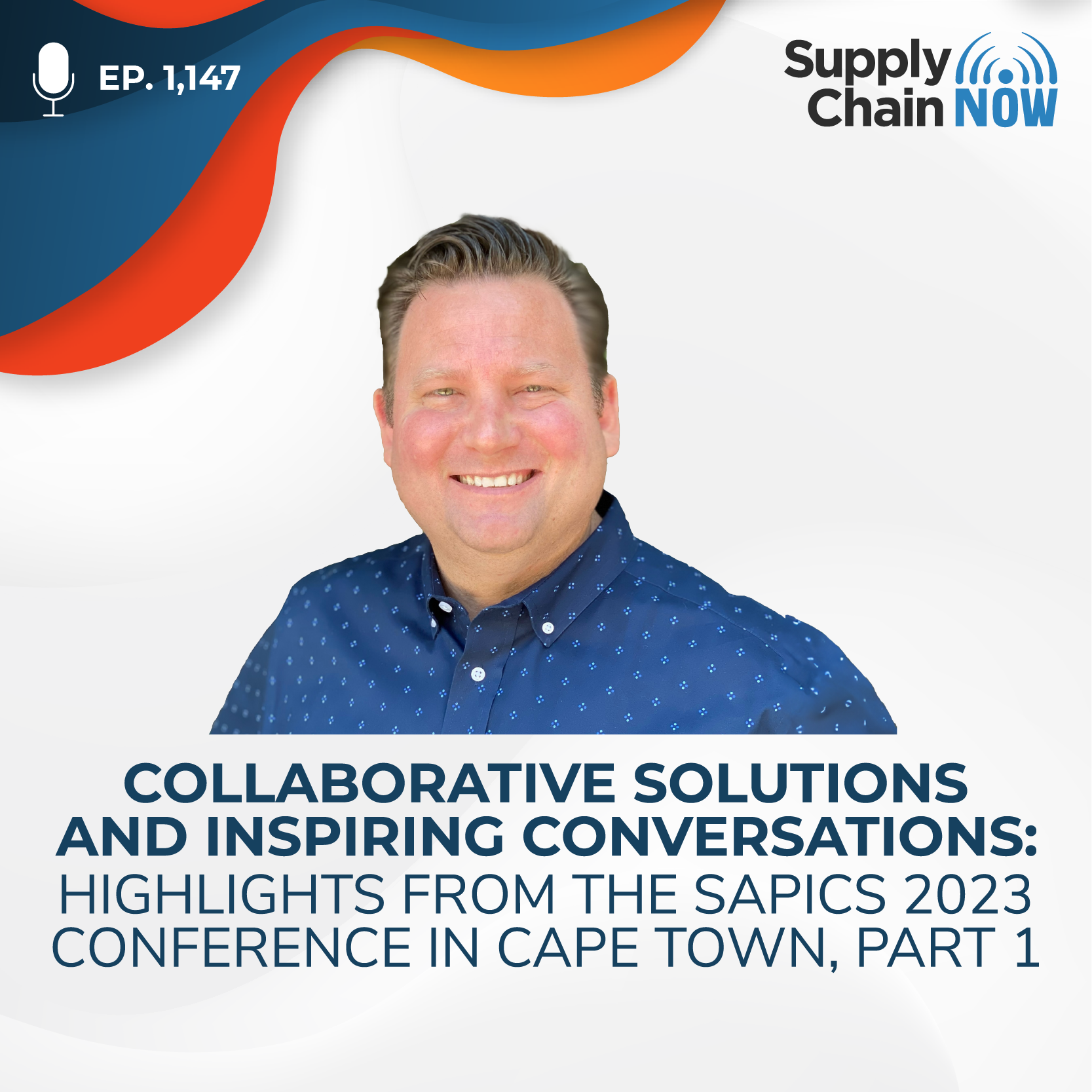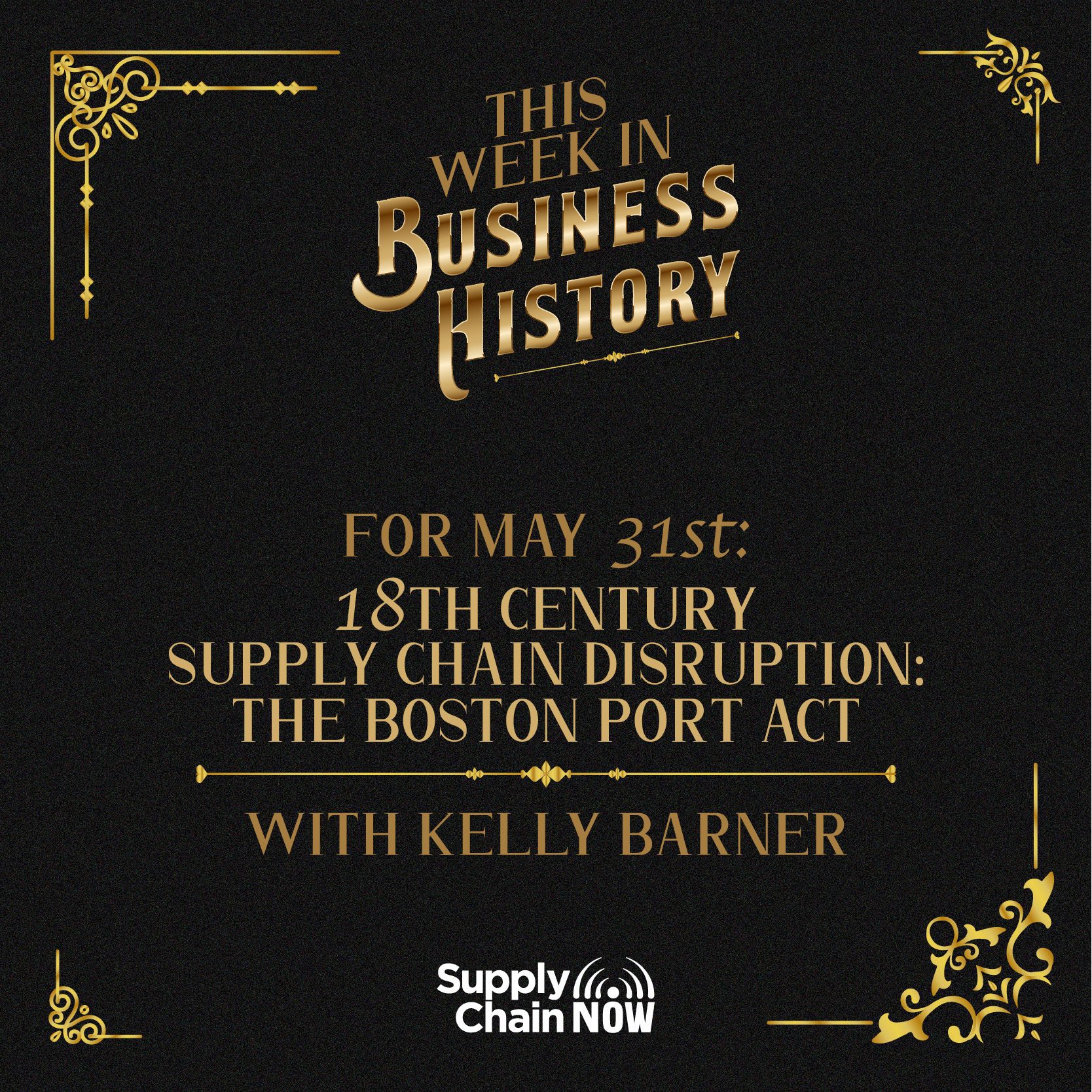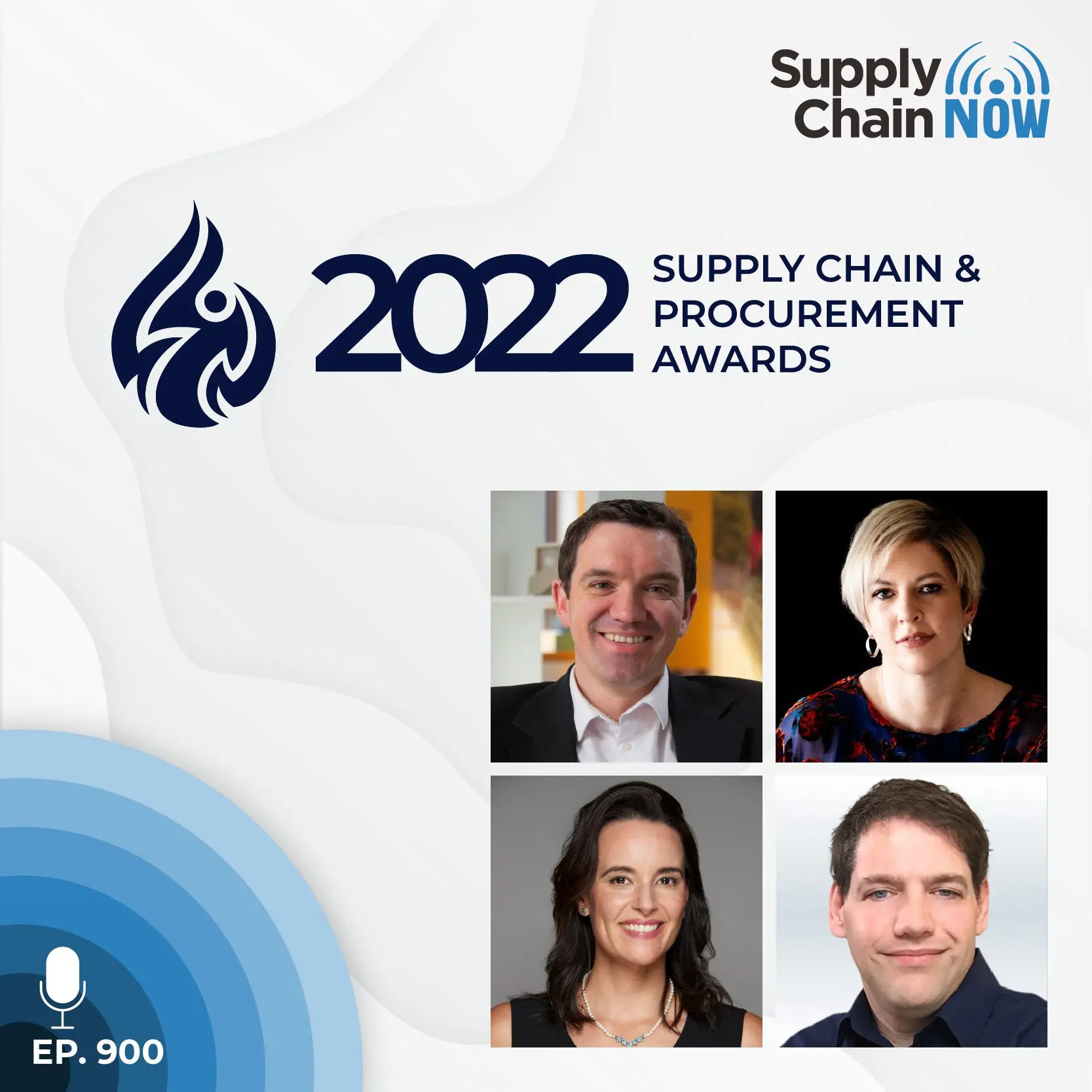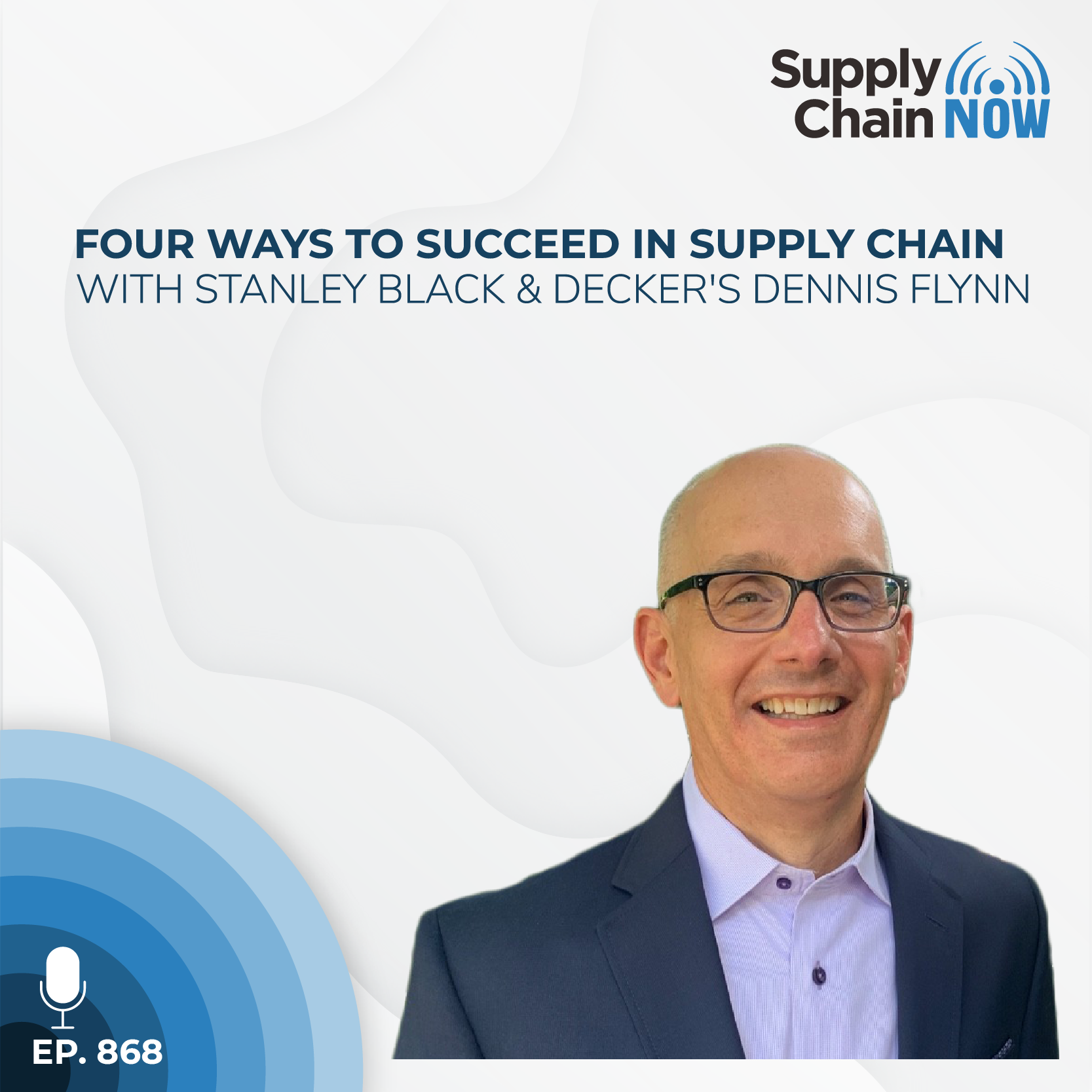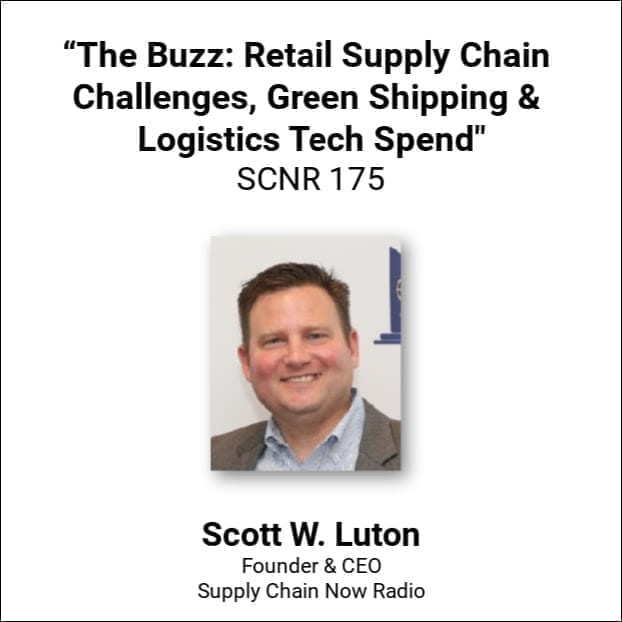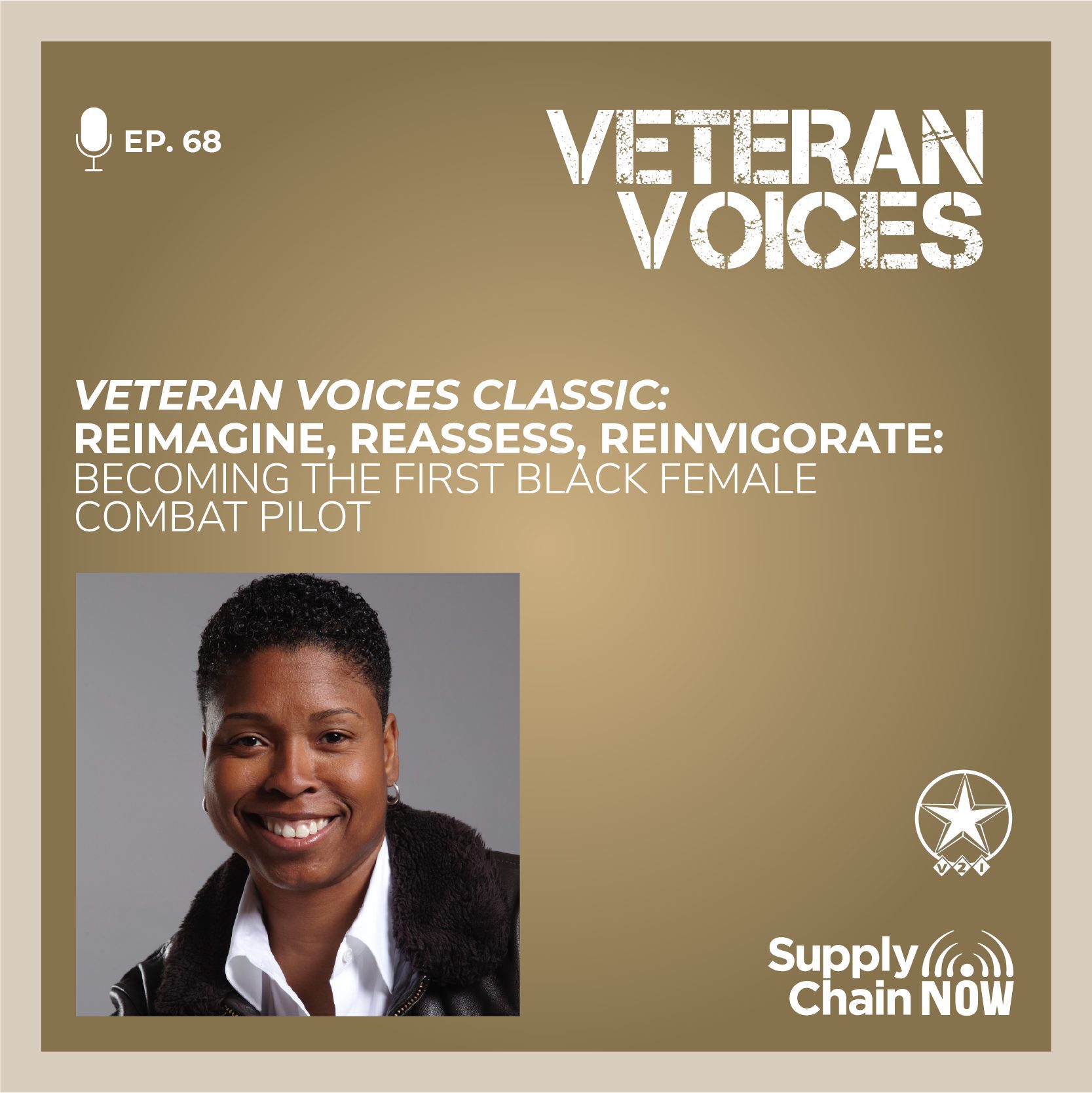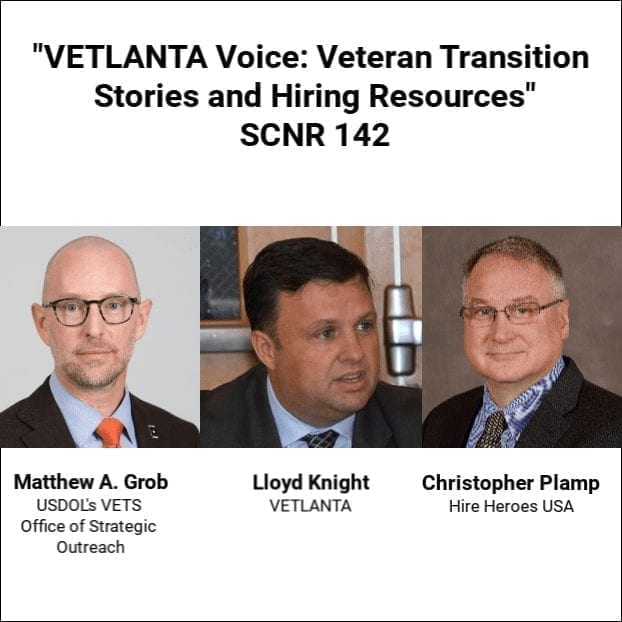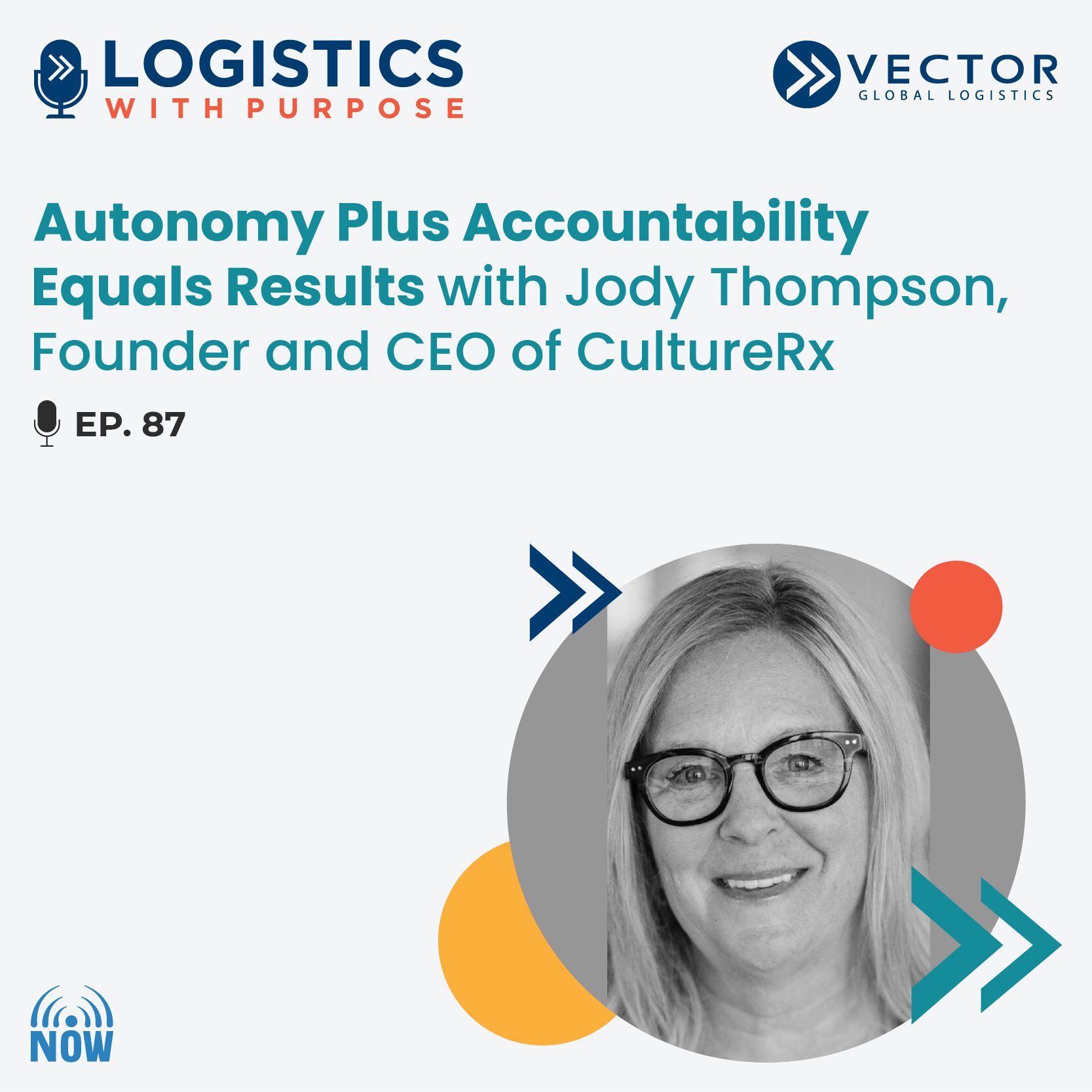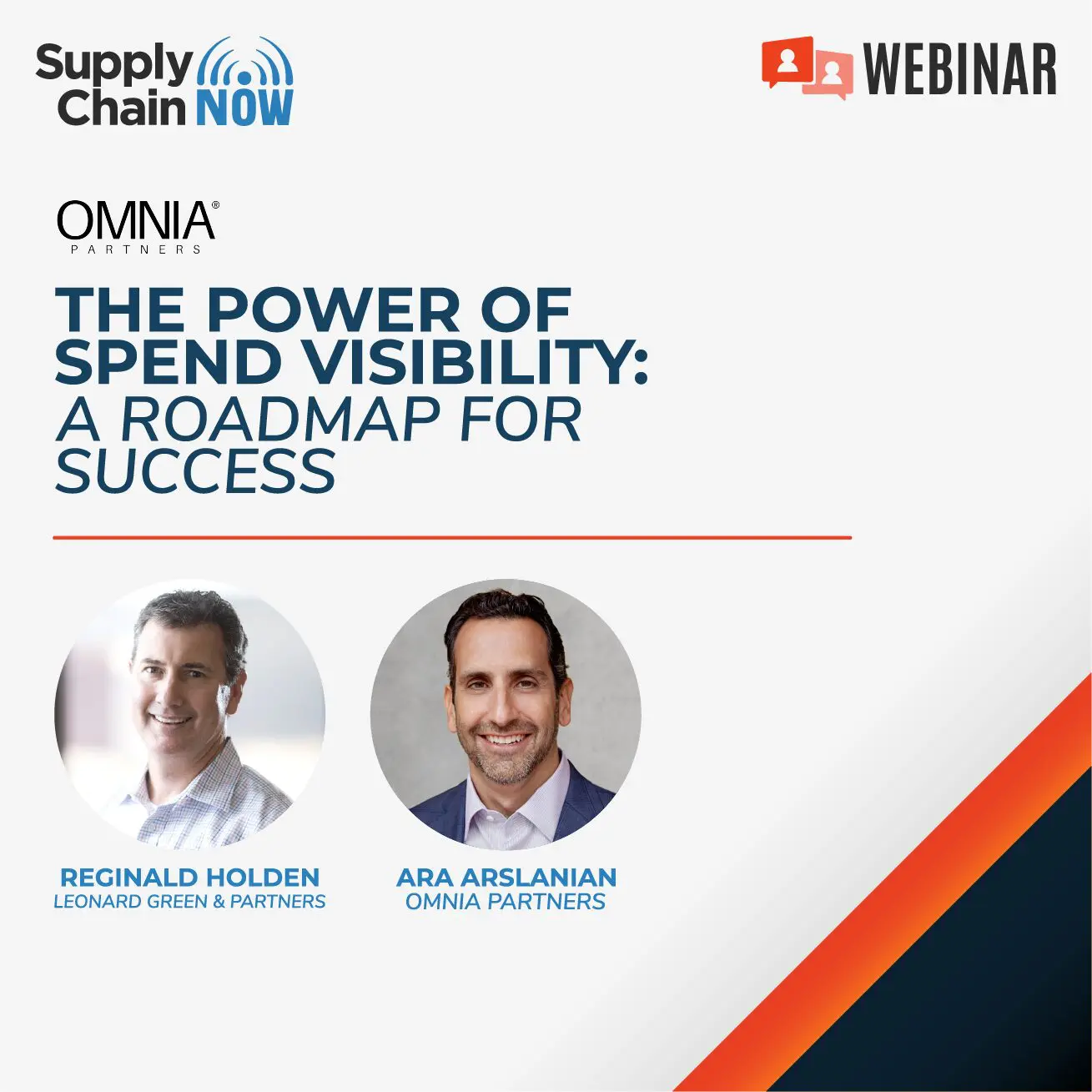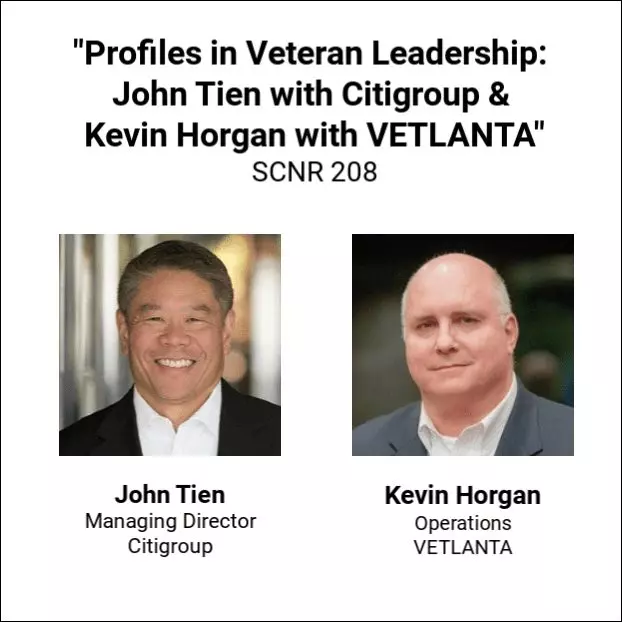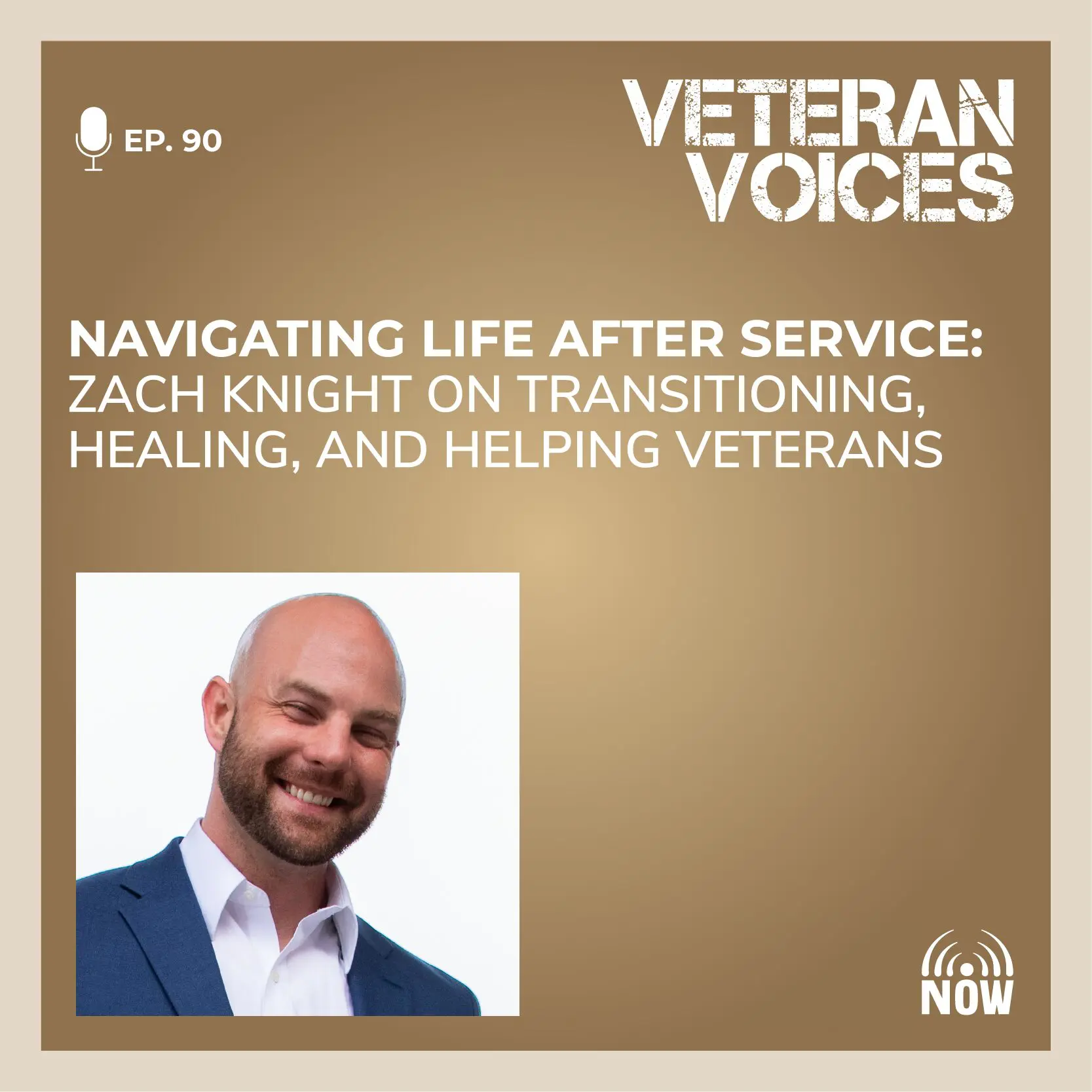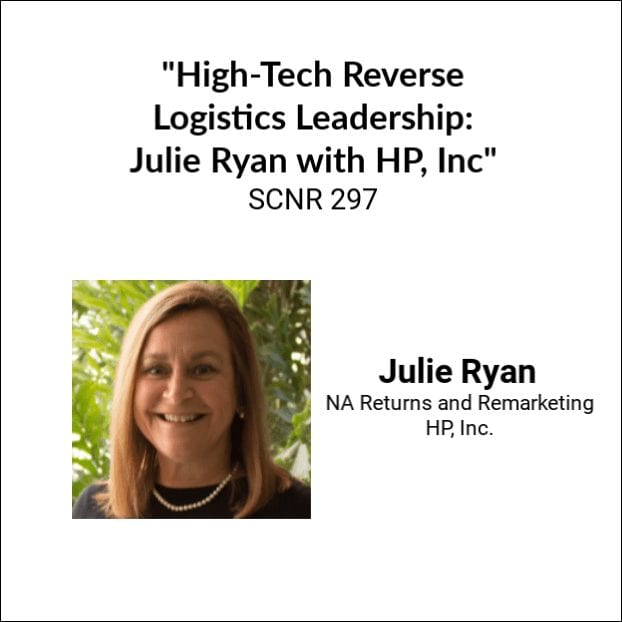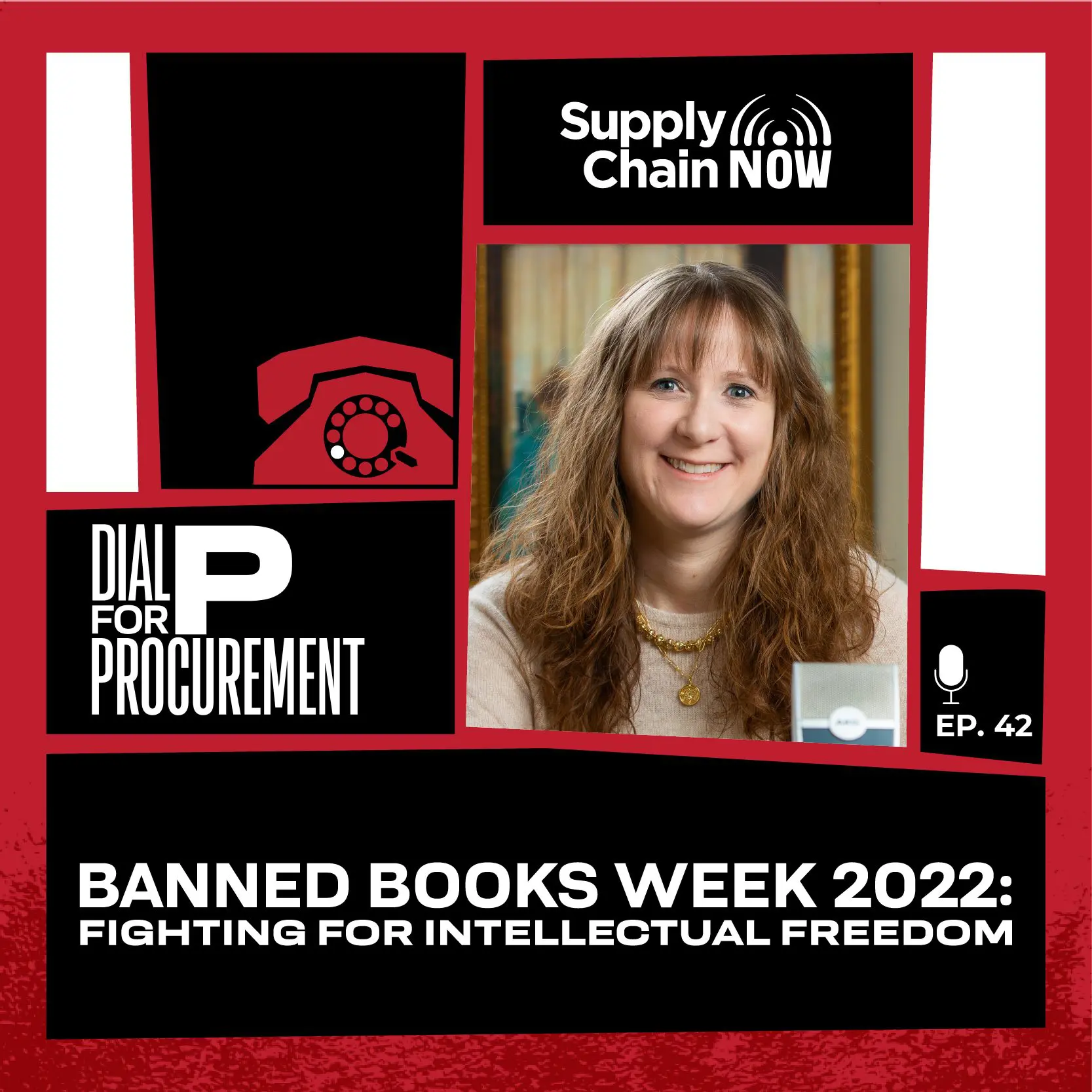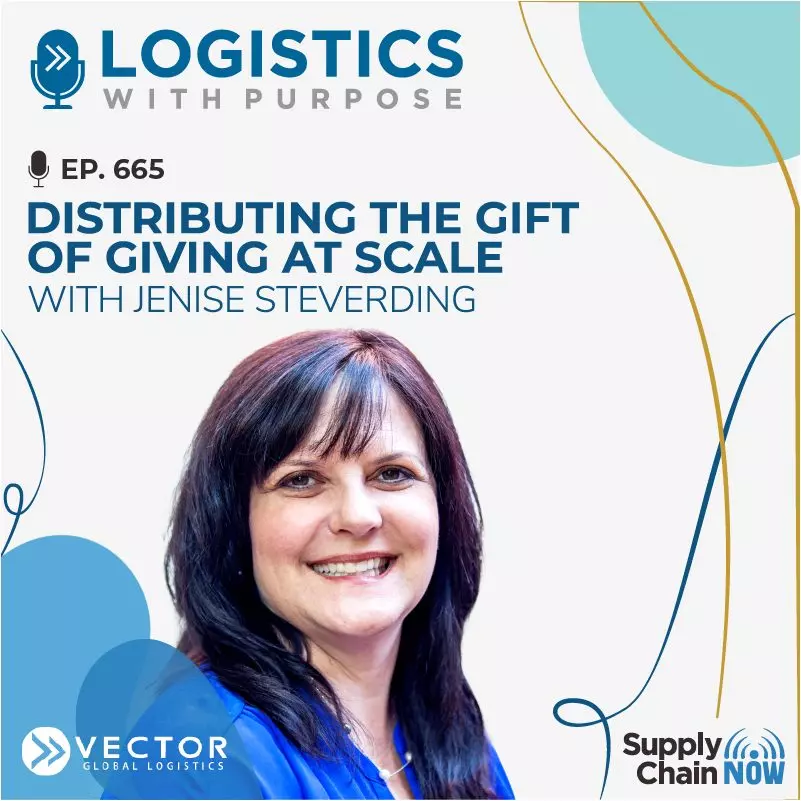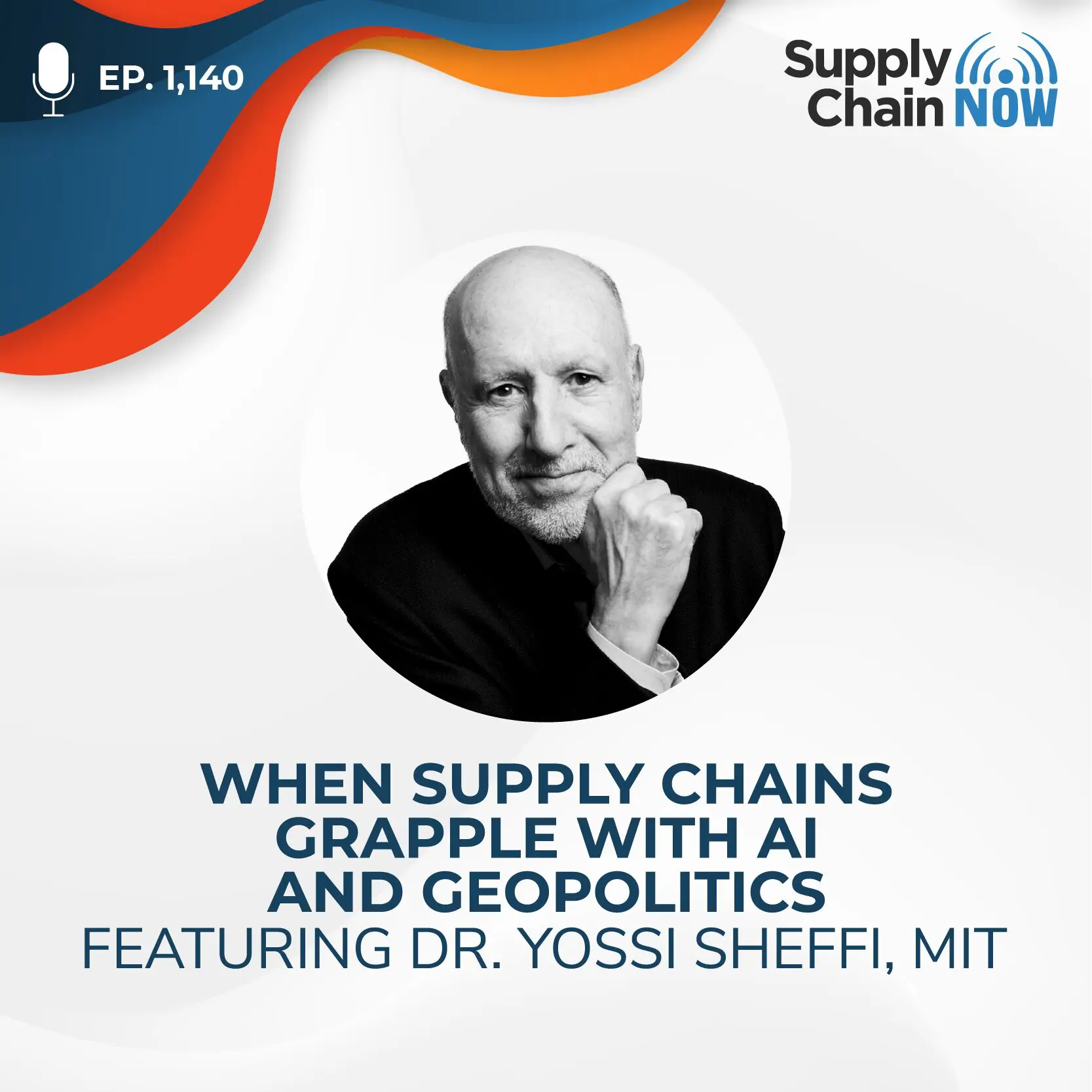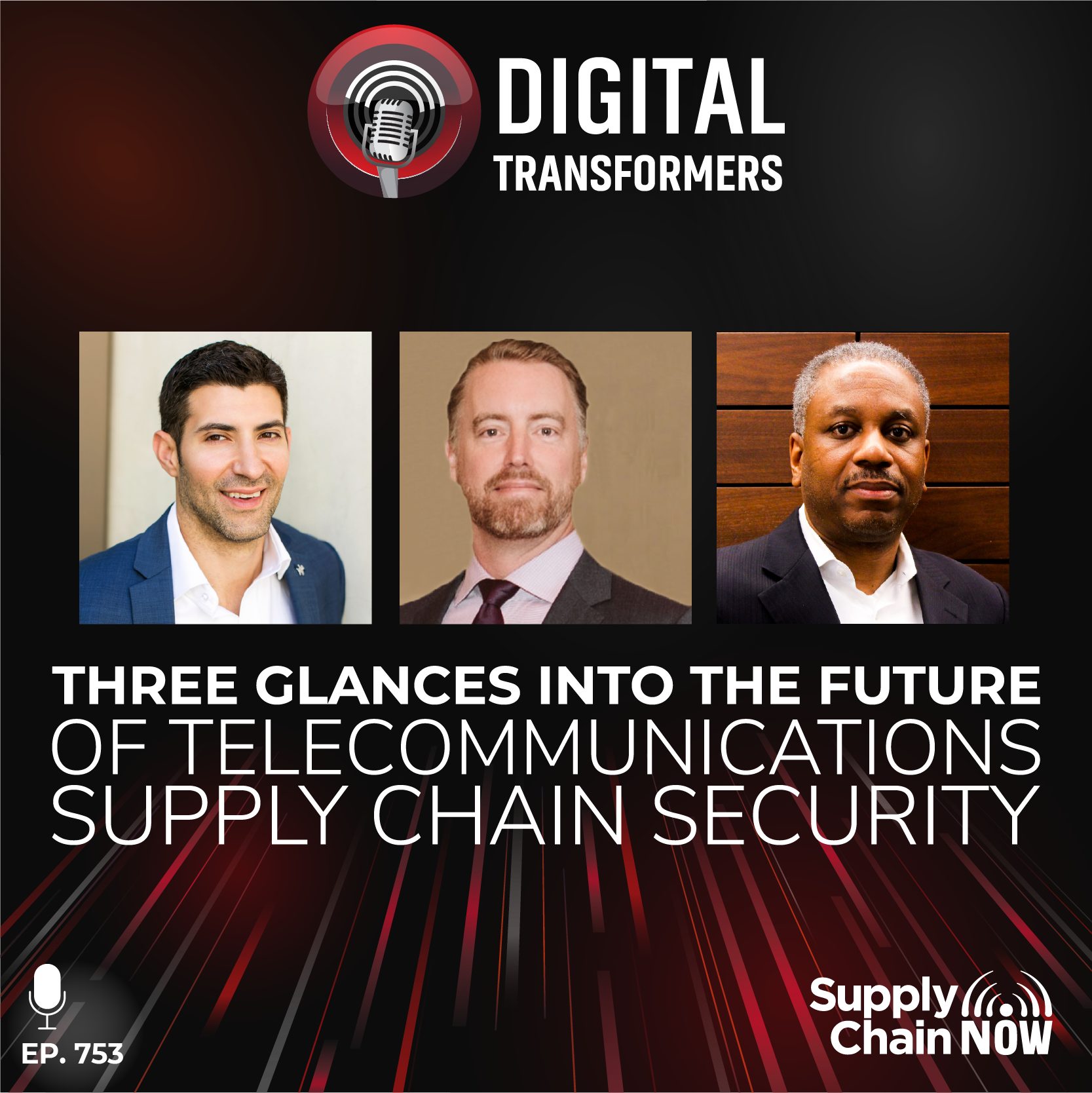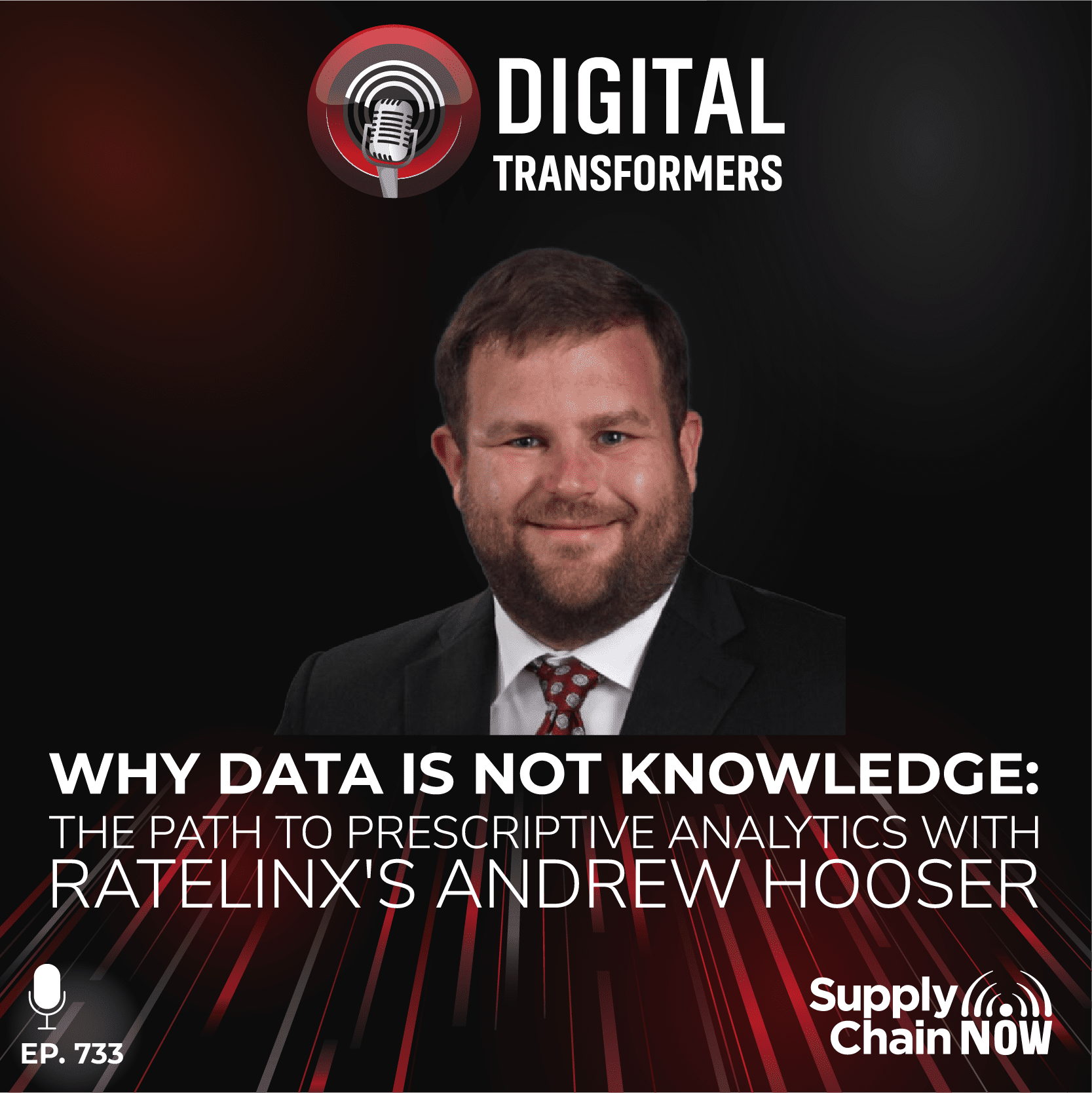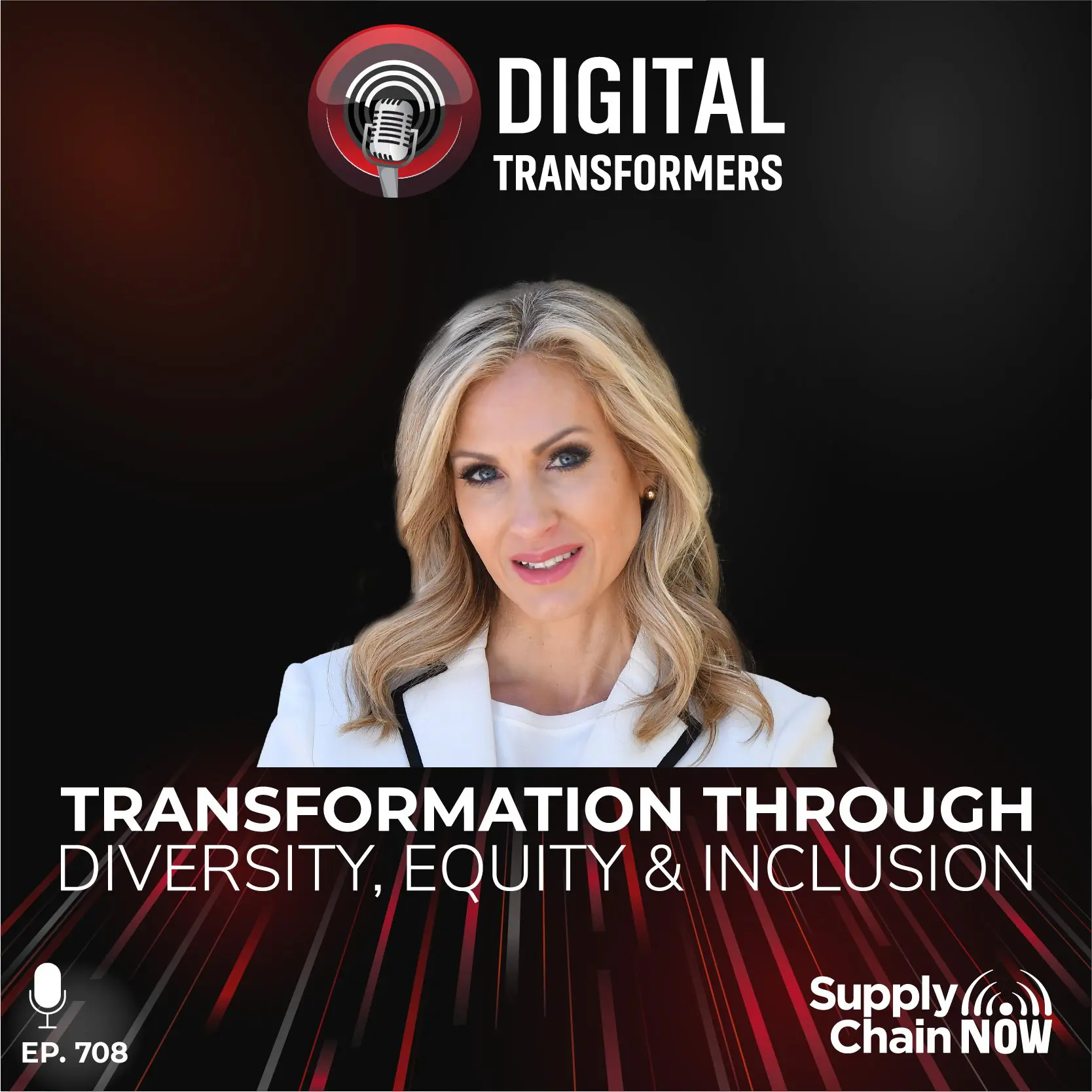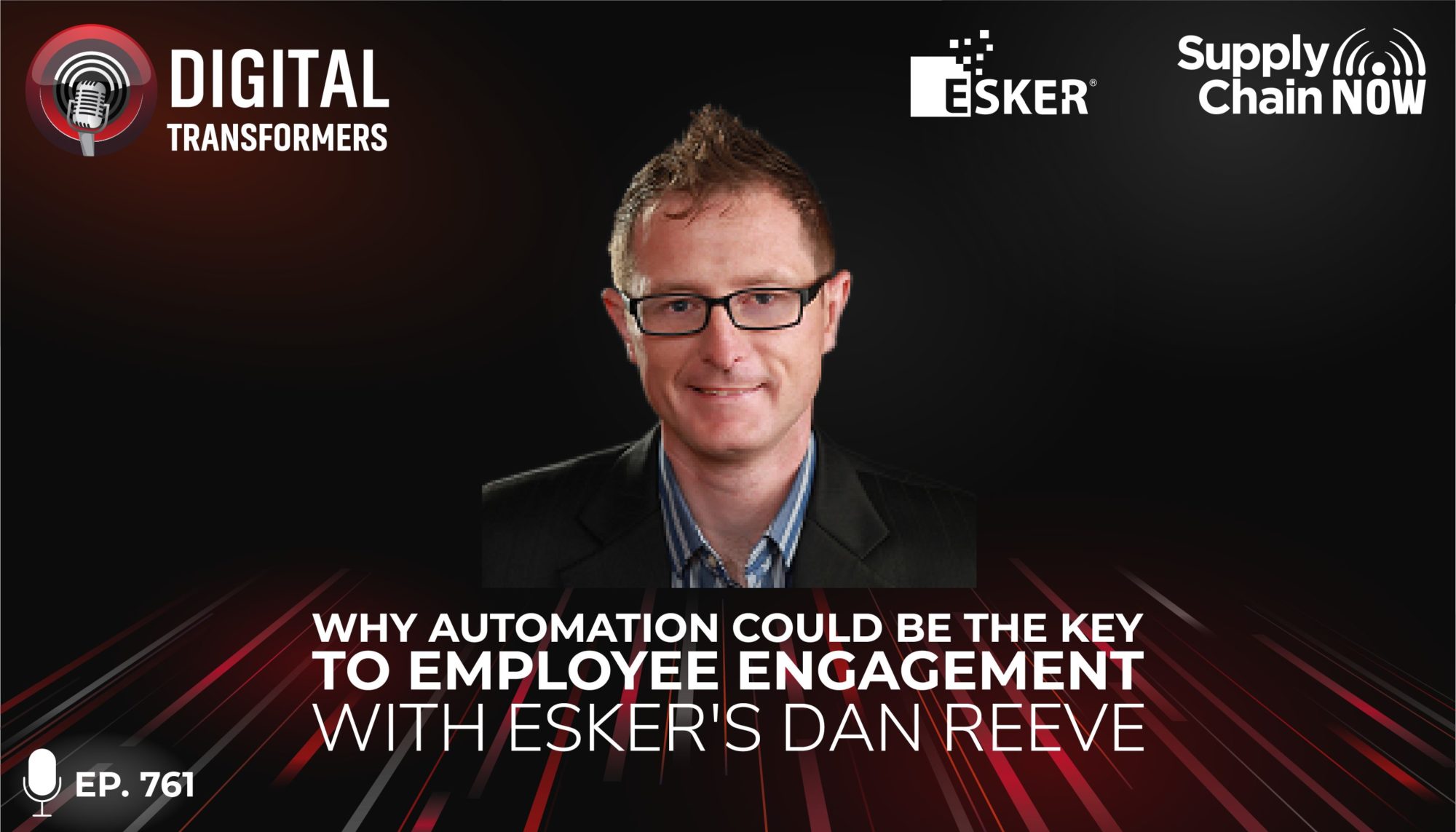
I think that digital transformation was a bit of a buzzword, but it's really going to stick because companies have realized that not only can they be efficient and agile but grow and retain that growth ... I think increasingly we want work that is more engaging, more interesting.
-Dan Reeve, Esker
Episode Summary
You’ve heard of automation “stealing” jobs – but what if it actually has the potential to attract and retain more workers? Everywhere you look across the supply chain, people are missing – but the impact is perhaps nowhere more apparent than in customer service, where some companies have lost up to 50% of reps. And in the absence of workers, those same companies are feeling the gaps in their digital transformation efforts. Could emerging automation and artificial intelligence-based technologies pick up the mundane tasks around the building – making way for employees to focus on more impactful work? In this episode, co-hosts Kevin L. Jackson and Scott Luton discuss that possibility with Dan Reeve, sales director at Esker. Tune in as they trace the recent breakdown in customer service levels – and the promise of technology to enhance both bottom lines and more meaningful professional lives – all in one fell swoop.
Episode Transcript
Intro/Outro (00:03):
Welcome to Supply Chain Now, the voice of global supply chain. Supply Chain Now focuses on the best in the business for our worldwide audience, the people, the technologies, the best practices, and today’s critical issues, the challenges, and opportunities. Stay tuned to hear from those making global business happen right here on Supply Chain Now.
Kevin L. Jackson (00:33):
Hello, everyone. This is Kevin L. Jackson, and welcome to Digital Transformers on Supply Chain Now. I’m greeting you today from Washington, DC, the nation’s capital, and right here next to me, keeping me safe is Scott Luton from the ATL. Hey, Scott, how are things today?
Scott Luton (00:52):
Kevin, always a pleasure. It’s gorgeous here in the Metro Atlanta area today. And, it’s an honor to be your wingman, as we get through this conversation here.
Kevin L. Jackson (01:02):
Yeah. Absolutely. But today is really, I like this because we’re going to talk with one of our favorite repeat guests. And, we’re going to talk about the latest business challenges and how organizational leaders are really looking around in their business process to free up their team members from doing those mundane things like going through the inbox and trying to focus on creating value. You know, I mean, every day you get hundreds of emails you’ve got blocking and tackling and just trying to get to something that’s valuable. And, we’re going to be talking to Dan Reeve, the Lead Sales for Esker US. Hey, Dan.
Dan Reeve (01:48):
Hey, how are you? Nice feedback. Good to see you both.
Scott Luton (01:51):
You too, Dan.
Kevin L. Jackson (01:52):
Nice. It’s awesome. You know, I know you’ve been doing a lot of thing with wildlife, but, Scott, well, we’re going to start this conversation today.
Scott Luton (02:01):
Well, gosh, you’re talking blocking and tackling. We could talk football. We could talk American football, but where we’re really going to start with is some travel, some recent travel adventures that Dan has been on. And, Kev, we’re going to – you’re not going to get all the answer to the question either. But, Dan, in our kind of calls between the calls as we tee up these conversations, man, not only did you send me pictures but you told me some great stories about a recent trip to Corsica. So, tell us where, first off, on a map, for some of those folks and maybe geographically challenged like I am, let us know where that is and give us a couple of highlights of your recent trip.
Dan Reeve (02:40):
Well, Corsica is located between France and Italy. So, it’s an island. It’s an hour’s flight from Leon, so they’re in the south, very popular, kind of – the islands traded hands several times over the years. The Italians invaded during the Second World War and then I think they were encouraged out of there in 1943. So, it’s interesting because when you drive around, the radio stations are dominantly Italian, but, yeah, it’s a French, I think the right word is colony. They refer to the France as the mainland, but, yeah, I think it’s a good place to go, interesting place. I’ve heard good things about it. Very nice. But I didn’t have very good time. Maybe, there’s lot of work. It was very mundane. It was a hard time.
Scott Luton (03:25):
You’re blocking and tackling all day. But, Kevin, I think we were on a livestream and I shared a snapshot or two. So, Dan, some of the images we shared earlier, it’s like you’re on top of some mountain peaks looking over some kind of bay and it was absolutely gorgeous. What were you doing?
Dan Reeve (03:42):
Hiking, and, you know, tiring my boss out because anytime you’re going to negotiate, it’s always good to take your boss out, hiking for five or six hours [inaudible], and then ask for that raise, you know. So, we were hiking. We went out and hiked for a few days before our managerial work event. I like to do that because, one, it takes me a while to get over jet lag. So, getting out there doing a little bit of exercise, get on their time zone always helps me. And, two, with, you know, the logistics of COVID, it was the first time in two-and-a-half years, I’ve traveled to Europe and we just wanted to sort of get through it. You know, you have to have an electronic digital European health pass. And then, obviously, you know, you had to get a series of tests. So, I did discover that in Europe they do the PCP tests a little bit different. You know, they put that swab through the back of your brain. Here, it’s like a little tickle. There, it’s like, whoa. You know, you’re like, oh.
Kevin L. Jackson (04:38):
Stop, stop.
Dan Reeve (04:40):
Yeah, yeah.
Scott Luton (04:40):
Well, the logistics of travel, of course, have changed dramatically and we’re still fighting through so that we can get back to some semblance of normality. But, hey, really quick in the pre-show –
Kevin L. Jackson (04:51):
We had a guest the other day that was stuck in Dubai for 10 days because they couldn’t leave. They were standing next to someone who apparently didn’t test properly for COVID, didn’t pass the test.
Scott Luton (05:07):
You’re right, Kevin. And, Dan, get this, as he was wrapping our livestream with us, he was three hours away from finally getting on a flight and getting liberated. So, it’s amazing.
Kevin L. Jackson (05:18):
Escape.
Scott Luton (05:19):
Yes, escaping. But, you know, these governments around the world, there’s a variety of different policies. And, you know, Dan, as you’ve alluded to different approaches and methodologies to attack this pandemic. But, anyway, we will all look forward to getting back to where we can travel more freely. On that note, pre-show, Kevin and Dan, we realized we uncovered that you all have a mutual love for Singapore. Kevin, what’s one of your favorite aspects of traveling to Singapore?
Kevin L. Jackson (05:47):
I’ll tell you. Singapore is one of my favorite cities. I first enjoyed it when I was living in the Philippines and I was in the Navy. And, I would go there – and I was a pilot in the Navy and we would land at the airport and on the way to the hotel, there’s this restaurant on our left side and we would stop there every time and get – it’s either chili, chili lobster and pepper crab, or chili crab and pepper lobster, or both. But it’s awesome. If you ever go to Singapore, you got to try that out. You know, food is one of our favorite things here on Supply Chain Now.
Scott Luton (06:30):
You’re right. And, it’s a universally bonding element, which is also a good thing. All right. So, Dan, one, you get the final question here as we’re talking travel. Based on what Kevin just shared about Singapore, one of his favorite places to go, he mentioned some, what sounds like delicious food dishes. What was your favorite part about Singapore?
Dan Reeve (06:47):
I did eat the same meal. It was pretty good, but there’s that famous hotel shaped like a boat. It’s really famous. We did stay there and they’ve got, you know, they’ve got that infinity pool and I thought that was pretty cool, just the shape of the boat, but that pool up there, you know, managed to sneak in there – I think managed to sneak in there in between or the end of a long workday.
Scott Luton (07:11):
That’s right.
Dan Reeve (07:12):
It’s pretty cool.
Scott Luton (07:13):
Lots of work.
Dan Reeve (07:14):
It’s no, no, no fun, I’m telling you. It’s horrendous.
Scott Luton (07:18):
No adult beverages.
Kevin L. Jackson (07:18):
Their [Inaudible] is horrible. Right?
Scott Luton (07:22):
All right. So, now that we’ve had a little bit of fun and I’m looking forward to, I’m jealous of you both. Corsican and Singapore are on our top 10 bucket lists. But let’s get down to business and do some heavy lifting here. And, I want to start Dan first, and then, Kevin, we’re going to come to you. You know, we’re big believers in level setting. You know, we’re going to be talking about, you know, P2P and O2C. Stay tuned if you don’t know what those are. We’re going to uncover that. But let’s start with just level setting about some of the things we’re seeing out in the marketplace. You know, Dan, not only beyond your travels and beyond all the ways you all help organizations, also your conversations with business leaders and when you pulse all of that, what are some things you’re seeing out in the marketplace?
Dan Reeve (08:01):
Two themes then I think. When I talked to supply chain leaders, one theme is when they look at how their customer service staff are being used, or should I say they think about the customer service staff in that order acquisition, the process of receiving orders or inquiries from customers, one of the problems going on right now is – so a lot of folks are oversold. They’re oversold. Therefore, there’s a lot of pressure from the customer because the customer wants to know, well, okay, I’ve placed this order. Can you fulfill it? How long will it take? Are you going to give me that particular [inaudible] or something else? If it’s going to be back ordered, how long? And, in many cases, the customer is placing a lot more inquiries and questions before an order comes in. But the customer service staffs are already in many cases, I mean, labor is a big issue and many customer service staff [inaudible], you know, they disappeared like many of the staff we’ve seen in industries since COVID came along. And, what I mean by that is people seemed to have moved on to different roles, different jobs, and their expectations. Is it a work they’re going to do has, or they’re willing to do, has changed?
Kevin L. Jackson (09:12):
[Inaudible] right?
Dan Reeve (09:13):
Yeah. So, a lot of supply chain leaders are saying, “Okay, I’m going to struggle here. I’ve got more work needed to place an order.” Customers demand and expectation has gone up. We still have the Amazon-like effect. But my customer service staff and my sales staff are bogged down because they’re get all these emails, questions, inquiries, and then we need to sort of be able to recognize information to store between the CRM, ERP, email, which for many a hot box or a nightmare. This information is in all different places.
Dan Reeve (09:46):
And, what’s happening for some is that the customer is calling the VP of supply chain or even the head of sales saying, “You’re not taking care of us. Your service levels are poor. We want to have information sent back almost immediately.” And so, one of the things we do see folks doing is saying, “Okay. Can I provide the customer with automatic replacing [inaudible] recognize you’ve placed an order? We recognize you have an inquiry. Here’s some of the information you need based on ship date, your availability or what you can expect.” Pass that information back as quick as you can, almost semi-automated or automated, so that you at least placate the customer or maybe they can do something with that information. A lot of customer service reps or their leaders feel they’re in a swivel chair.
Dan Reeve (10:26):
You’ve been there, Kevin. You know, you’ve taken off on the flight deck. You’ve got folks there in the, you know, the control unit monitoring. We’ve got any sonar threats. We’ve got any air threats. And, they’re back and forth. Well, actually, maybe in the Navy, they focus on sonar or they focus on air threats. But these customer service reps –
Kevin L. Jackson (10:44):
I’m not [inaudible].
Dan Reeve (10:47):
These customer service reps, they’re doing that. Okay. I’ve got CRM. I’ve ERP. I’ve got internal systems. And, customers calling up or emailing and asking for a response. This is all difficult, not for just placing and handling orders. And, supply chain leaders want fast information about – they want the demand signal. What do people want? When do they want it?
Dan Reeve (11:08):
As folks bounced between these different systems, it’s making it very hard for them to actually get a true picture, resolve issues, fix claims issues, deductions, and at the same time service the customer because many folks are so oversold. The first thing they do when an order comes in is race to book or find materials from somewhere. So, there’s a lot of pressure. And, I’ll talk about a second thing in an issue. I think all of this is compounded by labor.
Scott Luton (11:37):
Yes. So, let’s pause there for just a second because you shared a lot there, before moving to the second one. Kevin, I’d love for you to respond and then I have a clarifying question for you. Kevin, respond to that first observation.
Kevin L. Jackson (11:54):
What I hear is that the organization is really struggling with identifying and collecting data and then turning that data into information so that you’re going to actually do effective action. So, pre-COVID, everybody was used to having data in the office or in locations, and they knew where to go. Then, when COVID hit and everybody went home, they realized that they didn’t have access to that data. And for, you know, for the first 6, 7, 8 months, people said, “Well, you know, this is going to get over. We’ll get back into the office so we won’t worry about doing anything major. We’ll get through it.” And then, people realized that there is no getting through. People now need to be able to get access to data to create information from anywhere. And, these people include your customers. So, now you have to figure out how to get that data, identify it quickly, and get it to the need as fast as possible. And, this is driving business process engineering, understanding what data is important, who needs that data, and how to change that data into information to make effective action.
Scott Luton (13:25):
Love that. You got to be able to manage and play in a transformational time, right? Things have changed dramatically on a number of different planes. I want to ask one more clarifying question for you, Dan, before you moved to your second observation, because some of what I heard is that pre-sale, all those pre-sale activities before you’re even assured that there’s going to be revenue produced from those activities. You know, ’cause, you know, sometimes the customers don’t place the order. So, some of what I heard there is how you’re seeing businesses try to optimize that time that spent before you know if the order’s going to be placed and if all that work’s going to lead to revenue. There’s a great opportunity to optimize and improve that aspect of the order to cash cycle. Would you agree?
Dan Reeve (14:11):
Yeah. It makes me think of two examples. One is a CIO, chemical industrial tape manufacturer who said to me years ago, I would like to be able to track all those situations where folks try to place an order, but we didn’t give them exactly what they wanted, because then I’d like to see, did they make mistake? Are we not carrying the right solutions? Do we need to tweak? Because they tried to order something different, we didn’t have it, or there’s something going on there. So, there’ll be value in knowing that.
Dan Reeve (14:37):
The second one is, I remember talking to a sales leader for an aviation distribution unit in the southwest. And he said to me, “Dan, for every sales order we actually book, we have three or more inquiries.” And then he said, “I realized we could increase sales if we could at least respond to those inquiries and give them a quote.” But then he said, “So there we could increase sales revenue because we’d be faster to serve, faster to answer.” But then more value would come if we could actually convert the sales orders. So, sales order comes in, can we convert that, recognize that we really got information ’cause we gave them a quote based on what we asked for previously. Well, there’s a lot of manual effort they involved in generating that, kind of create an order by pulling in all the information, the demand, all that history, all that knowledge, and if need be presented to the customer. I think this is what you want. Is this what you want? Double check. Or having taken that quote history, create an order in the ERP. Obviously, it’s got to be accurate. It’s got to be right, but it’s fast. And, it’s removing some of those steps. You know, even this week when I was talking to some of my reps about growth, how do we continue this great growth trajectory we’ve been on? Sometimes reps will point to red tape. What can you do as a sales leader to remove red tape, red tape frictional delays? And, I think these things that we’re talking about here are all about doing that to improve the customer experience.
Scott Luton (16:08):
I agreed. I’m with you, and, you know, all too often folks think of improvements and using technology to increase margins. But there’s also, to your point, that top line of revenue opportunity. You know, as I heard you described that, I think of my time with metal stamping, where we get requests for quotes all the time, right, and, you’re trying to squeeze, you’re trying to figure out what the smart business plays are to the things that weren’t as such a good fit. And, of course spend the most of your time on that smart business. Well, the thing is, you still have to get back to the customer with a good competitive quote, so they can – you know, that they get some information and can make a decision. That sounds a lot easier than it is for many organizations. So, Dan, I appreciate you bringing that up.
Scott Luton (16:50):
Let’s move to, as we continue our level setting, so much to cover so little time, let’s move to your second big observation here in terms of what you’re seeing out in the market today.
Dan Reeve (16:59):
Okay. And, you did just make me think of another point. Okay. I’m going to mention it. When I was [inaudible] this weekend and that does tend to involve lots of times sitting there reflecting, watching, you know, slow days, I’ve been listening to Stanley McChrystal’s book, Team of Teams. In that book, the main premise is that in the past we focused on efficiency, predominately. It was all about business efficiency. You know, getting a hundred units out instead of the traditional 30 units. Keith, he says, in the modern age of all this data and there’s these networks is what we have to do is bring and enable our teams and our CSRs or supply chain planners to have agility. That is what we didn’t have in [inaudible] early days. We changed that. He says, that’s what – and this is what we came to realize, it wasn’t just for the special operations command. It was business needs it too. The ability to use technology, free up our folks to be more agile to therefore go serve the customer or prevent issues or fix issues quickly. I’ll take a pause. I’m ready to go to my second point. But do you want – can I [inaudible] or should I stop?
Scott Luton (18:03):
Kevin, you want to respond to that really quick?
Kevin L. Jackson (18:06):
Well, one of the things about agility is critical in all processes, but many times we get stuck in a process and we don’t know how to get out of it and people don’t like change. And, it’s a forcing function [inaudible] you need a forcing function in order to change existing processes. So, it’s a change in mindset where agility is important but because management leadership provides that freedom to change and drive that change of thought.
Scott Luton (18:43):
So, on that note, I think we could probably stay right here for several hours of this podcast discussion. And, by the way, I’ve got to add Stanley McChrystal’s book to my list of those to read there, Dan. But let’s get into your second observation for the sake of time and then we’re going to move into some additional level setting and what we’re seeing organizations do about some of these challenges that we’ve identified. So, Dan, what’s the second observation?
Dan Reeve (19:10):
I hinted earlier. The second one is labor, labor. So, many of the supply chain leaders I speak to have said that we were already thinking about could we make the customer service role, the supply chain planner role more interesting before COVID. COVID hit, suddenly people have to be empowered and they’re able to work from home. Many folks had to stay at home to look after the children. So, we’ve been hit on a double whammy because we were already thinking or needing that we had to make the work more valuable. We purpose the positions, grow the responsibilities so those folks would stay within the organization and not depart.
Dan Reeve (19:41):
One company I’m aware of, a manufacturer in Chicago, has lost 50% of their CSRs in the last five months, 50%. And, that was – so then you’ve got this turnover going on. You’ve got these manual processes that people don’t want to do and don’t enjoy. Then, many of these companies are oversold. Customers have, again, becoming frustrated both by the situation on the macro level and their engagement with your company. Managers and directors even are having to step in and do more manual type work when traditionally they’ve been looking at, okay, how could we be more efficient or how could we be more agile, or how can we plan for the future. That actually often leads to more errors because they’re not used to doing the day-to-day work or they’re pulled away from doing the type of deep social thought value engineering work that they need to be doing. So, you’ve got this sort of cocktail, this problematic cocktail going on, where the labor is causing problems. And, I think, go back to the examples in Chicago, they said, every rate has gone up and actually our demand plan have ended up replenishing items that we ordered wrong subsequently. So, they’re back there. They’re ordering again because they’re looking at what did we buy. No, we’d actually bought that and it was a mistake and that cost us, you know, cash flow.
Scott Luton (21:00):
It’s the errors that keep on giving, the first time errors that lead to second time errors and third time errors. That’s a great – that is a great call out. Kevin, respond to that a minute because, you know, it’s bad enough. We set back and, you know, when you make the error and you make it right again, you know, you lose a little traction. But, man, Dan’s talking about how – again, it’s the errors that keep on giving. What’d you hear there?
Kevin L. Jackson (21:23):
Well, [inaudible] one of the things that we have seen is the lack of visibility in business flows and business processes because many of those, as Dan has pointed out, are manual. They’re not automated. They’re not standardized. It’s difficult to or impossible to hand off like a customer from one CSR to another CSR or to this manager who’s now sitting at the desk because they don’t have enough labor to manage the customers because it’s all manual. It’s not automated. It’s not standardized because there’s no visibility in the internal processes of the organization. This is really what’s happening today and it’s why organizations are looking to redesign their business processes, identify what data is critical to those processes that also enables the agility that you may need as things change. And mark my word, change is constant in today’s world, in today’s business. So, you can afford to have a static business process.
Scott Luton (22:41):
Kevin, excellent, good stuff there. There’s so much to uncover in, as we tried, again, free our people up, right. Free our people up. Let them –
Kevin L. Jackson (22:53):
[Inaudible] mundane activities, right?
Scott Luton (22:54):
That’s right. That is right. So, I want to continue. Level setting is so important we feel in this era where we’re moving so fast. We’re moving at the speed of a thousand gazelles. You know, I was going to say that, Dan. You know I was going to say it. So, folks, if you don’t – if that phrase doesn’t sound familiar, you’ve got to go check out some of Dan’s previous appearances.
Scott Luton (23:13):
I want to move to, you know, we love our acronyms in global business and certainly in global supply chain. Dan, we’ll get you to define a couple. And then, Kevin, I want you to also really equip our listeners with some other, to be aware for some other acronyms that they’re certainly going to hear a lot more of. Let’s start with, Dan, with P2P. What is P2P?
Dan Reeve (23:34):
So, the market typically prefers to P2P as activities involved in procure-to-pay, the activities involved in buying goods and services and maybe going through an approval. Sometimes folks will not go through an approval and get a purchase order, or maybe they have a contract in the background. But procure-to-pay typically does cover both purchase of direct and indirect goods and services. Are you buying more materials or are you buying lighting and laptops and markers, paper that will indirect spend that you need for the office that supports the factory and the distribution units? So procure-to-pay. And then, pay typically is okay, well, we need to pay the vendor. COVID has led to a big change here actually. A lot of folks have said, “Ah, we don’t want to cut checks anymore.”
Dan Reeve (24:29):
I mean, I work with a healthcare organization in Miami. Somebody stole their checks in the middle of COVID and try to cash them. All the checks that were mail bound to suppliers. So, that, one, a lot of people didn’t want to come in the office because they were obviously worried about picking up COVID and wanted to take care of their health and the health of their families understandably. Two, a lot of companies said, “Okay. We probably need to move away from posting checks for the risk of fraud.” And, three, maybe icing on the cake, if not the driver, many of the suppliers are willing to take a virtual payment, already perhaps taken virtual payment of some sort. And, you know, there’s organizations like Corepay, Master Data who are – when I say procure-to-pay, you can go even further. Pay can actually be, let’s actually pay the vendor, pay them at the speed of a thousand gazelles. Because if you pay them really quick, well, they may well be willing to take an early pay or give you an early payment discount or you can get some rebates, you know, as much as 2% against your spend. That trend has really been lit up by COVID from what leaders tell me.
Scott Luton (25:34):
I agree. And, we see a lot of it. In fact, I’d take it a step further and call to some degree these last couple of years as procurement purgatory. Especially for small businesses, they have to jump through hoop after hoop after hoop to get paid. You know, eventually that company that owes, you know, on the invoice, they develop a reputation for who are easy to work with and who that you do all the work upfront and hoping to prayer eventually you’ll collect on all of that good work. So, I really – I think this what you’re talking about really a finger on the pulse of a lot of pain out there. Let’s also talk on a similar note, O2C, order-to-cash, right. Tell us about that.
Dan Reeve (26:13):
I will. I’ve got to say, before I forget it, you made a great point there, Scott. Many companies now having to buy goods and services from many different vendors, okay, because there’s a risk in just relying on a single, sole source vendor. You know, they might – [inaudible] material might be stuck in the Gulf somewhere or on some ship, you know. And so, the reality is, it’s important and many companies are realizing the way you compete is not just through price and product alone. It’s price, product, service, and your supplier is part of the network you’ve got to take care of if you want to take care and retain or grow your customer base. So, good point.
Dan Reeve (26:49):
Order to cash is those activities involved in capturing the order through to collecting money. So, you could say, well, at first point, and this is COVID applicable, first we’re going to do more business or we’re going to bring on a new customer. So, we credit check them. We need to onboard them. We need to make sure they’re not a risk to our business. Then, they’re going to bring sending orders to us through various different formats, EDI, e-commerce, web, PDF, you name it.
Scott Luton (27:19):
Homing pigeons.
Dan Reeve (27:20):
I have seen napkins. I have seen napkins from being sent through a $1 billion organization in the UK. Farmers were sending occasionally napkins for potassium. Same again, please. Same as the last month. You know, you don’t see many of those nowadays, but I thought that was great. So, order to cash, the process of bringing customers onboard, capturing that demand signal of the order, and then invoicing them accurately, chasing up that money as automated as possible, chasing those who are least, you know, those are the most or those that where you’re chasing efforts can be most effective. And then, the key thing that a lot of folks are beginning to really pay attention to is the process to apply the cash ’cause many have gone through and in some ways the growth of e-commerce and e-payments has made this more tricky, is payments often come in decoupled from the actual, the statement or the invoice that you send out.
Dan Reeve (28:18):
So, you’re like, “Well, okay, you’ve paid me hundred thousand dollars, but you’ve got 15 different invoices.” Are you paying off all of those, you know? Is this money all to be paid against the invoice or your account? And/or increasingly, okay, the short pays. I don’t know why I’ve got short pay here and I need to go and talk to customer service and shipping and logistics and finance and management to see if we’ll approve the short pay or research is valid, but I haven’t done – we’re struggling with staff already. We’ve talked about how labor is a big problem. So, this was a massive headache for companies even before COVID, as much as 4% of a company’s margin can be stolen or lost right there, short pays, deductions. Anyway, so that’s order to cash. And, I think traditionally many companies were focused, including software vendors, on solutions for the order to invoice, but we shouldn’t forget that cash process as well.
Scott Luton (29:11):
Excellent point. And, we know firsthand, we see all the time how payments are disconnected to the invoice that was sent out. And then, if there’s a short pay or an overpay or a timing issue, you know, the control function and the controller function or the AP, you name it, they’re so far downstream. They’re not sure exactly what took place and what the marry with what, so it just creates more heartburn, especially for organizations who are sending out thousands of invoices and are trying to marry up and disposition tens of thousands of transactions. So, excellent point there, Dan. Kevin, I want to bring you in here whether you want to kind of make a follow-up point on what Dan just shared or what other acronyms should we be having on our radar here these days?
Kevin L. Jackson (29:57):
Well, you know, I’m all about digital transformation and the acronyms that are critical to digital transformation are really all about enabling the organization to reduce the labor required to process information and data. You know, one of the things in manual business process is you’re leveraging a human to review the data, to decide what it’s attached to, what it referred to, and to dispose with or take action in order to leverage or use that data. But now in Digital Transformation, we are finding that a lot of our humans are being underutilized and that artificial intelligence can be used to do somebody’s mundane tasks. So, the hot acronym today is AI because AI or artificial intelligence can be associated with systems that are self-aware and capable of “rational thought” that can take this data in and interpret the data and take action on it.
Kevin L. Jackson (31:15):
I mean, we use it every day with optical character recognition and people don’t see that as AI, but it is, and it allows the machine to read documents and make decisions and take automated task. The other thing is that we’ve talked about before is business process management or engineering, BPM. And, this is where you can look at your business process and identify where you need humans and where you really don’t need humans. And, that’s typically the first step in a business transformation journey.
Kevin L. Jackson (31:52):
So, it addresses a couple of issues that Dan highlighted. First of all, the speed, it can make a process much faster. And, if you can respond to a customer faster, that customer is happier. And then, you can accelerate payments so you can improve your cash flow. But it also helps on the labor because you can reduce the labor required in your organization. And, the third is RPA or robotic process automation. So, this is software that can be used to automate all of your structured business processes. Once you do this BPM, you know how to create a standard in your process then you can apply RPA or robotic process automation to not leverage or not need that labor anymore. So, the RPA can do these tasks in less time with greater accuracy at a fraction of the cost, plus they worked 24/7 without picking electric break or feeding them. So, all of this is really part of digital transformation.
Scott Luton (33:19):
I love that. And, you know, that labor, those team members can also be reassigned. I mean, oftentimes you’re talking about folks that may know the organization very well, and we all know the tribal knowledge is leaving out the door based on pay rate differentials, based on burnout, you name it. So, gosh, if you can apply technology again to take away these mundane tasks that technology can probably do better anyway and then give these folks opportunities to really apply themselves in new ways of creating new value for organization, which also would take some of the burden off of our great H.R. folks and recruiters that are in the battles, as Dan mentioned, on the hunt for great talent. So, really, it’s a win all the way around. Right?
Kevin L. Jackson (34:01):
Absolutely. Yeah. Actually, Dan, on some of our earlier conversation, I believe this was one of your main objectives, on a strategic level is to free up team members that are involved in this P2P and O2C process. Can you give maybe a few examples of how this happened?
Dan Reeve (34:25):
Yeah. I mean, you remind me of, and I’m going to cover RPA machine learning AI briefly as I answer this. Scott, you talked about, you know, we’re in the biggest labor threat or dynamic we’ve seen for many, many years. And, you know, years ago I was in MCR Safety, a great company in Tennessee and they make safety products, and the GM said – we were there and they were deploying Esker technology for machine learning AI of order automation. They had a tool that didn’t really allow them to scale. They wanted to rip that out. And they said, we want something that if orders have been for your network already, great, that’s learning, we don’t need to do. Your AI will observe and watch uses of it as they tweak or adjust sales orders and they learn all that and it’ll do it accurately. And, it will free up our folks to go and do cross-selling, upselling, education planning. And we don’t mind. They said, hey, today one of our CSRs is moving to become a procurement officer.
Dan Reeve (35:22):
We celebrate that. The customer service manager said, “I celebrate it. You know I feel like I’ve managed to contribute to that gentleman’s career. I’m little sad to see him go, but I’m far more happy to see him stay with the new organization versus leave.” The GM – I spoke to the GM. He says, “The thing hate, Dan, is when we lose that talent. We spend so much time hiring them, training them, really trying to, you know, make them sort of enjoy the work-life here, having to spend so much time more on that.” But then to lose that person who can go into the industry. But they know so much, they could probably contribute to our business. This is even pre-COVID.
Dan Reeve (35:57):
And, it’s just simply been amplified tenfold now in COVID where, you know, the whole customer service staff or the whole procure-to-pay staffs are thinking is this type of work I want to do? How long do I do this before I get to my next sort of progression? I went to university or, you know, I’m skilled at fixing problems and issues. When can you free me up to collaborate with procurement or to go and talk to the supplier or the customer? How about how we can improve processes? So, I think one point, Kevin, is RPA has its play. Sometimes people use it on the front or the backend of Esker. When folks deploy Esker, they’ll often say we do use RPA in certain processes, but when we want to dedicate a process, a business process like order management or payables, we might do like Montreal airport did.
Dan Reeve (36:44):
They injected – in their case, they used Solonus, and shout-out to those guys. They injected that business process mining technology into their organization, looking to see if there’s any holes in the tire. It said you’ve got broken processes compared to others. You could make a lot of improvements in payables. They then went on a journey to look for AI machine learning technology for procure-to-pay, looked at a number of vendors and said [inaudible] Esker. So, I think, you know, I agree with all that you said, basically, yeah.
Scott Luton (37:18):
[Inaudible] how nice is that. That’s like a gift box with a ribbon, a nice ribbon up on top.
Kevin L. Jackson (37:22):
So, I was thinking. So, if you’re saying that people are doing that today, as we go into, hopefully post-COVID when move into 2022, what is the one thing that business leaders need to focus on? Is it RPA? Is it AI? Is it something else?
Dan Reeve (37:44):
Well, you said digital transformation. I think that’s a better term because RPA is just one set of scripts and bots. It has its place. I mean, many of my customers, the CIOs, would use RPA. I’m not naive to that, but it doesn’t necessarily mean it’s the right solution for business process automation every time. I think there’s various different technologies out there. I think that digital transformation was a bit of a buzzword, but it’s really – it’s going to stick because companies have realized not only can they be efficient and agile and grow and retain that growth now if they go through their digital transformation. It’s almost like companies were getting into it. COVID has broken the ship away from the dock and everybody realizes we have to do it. But I think part of it is not just because the customer supplier has different expectations, we have to make sure we’re serving those networks, not just the customer. But I think the staff, I think increasingly we want work that is more engaging, more interesting. And, for many, they’re not going to even join or stay very long if the work is mundane and, you know, there’s not some kind of elements of digital transformation or efficiency or the ability for them to – is another book for you, Cal Newport. It’s a black and yellow book. Cal Newport’s a famous MIT professor. He wrote books saying free up your staff because you do your most effective work when you block out time to go and write your book, where you block out time, just get away from those emails and focus on valuable conversation with the supplier and the customer. He knocked out more research papers than any MIT professor at his age in a short period of time.
Dan Reeve (39:24):
And he said, “I do it by focus. Get rid of social media, cut that off your phone. Focus, focus, focus.” And, I think the opportunity is, can I free my folks up, not just to sort of engage with customers and suppliers, but maybe even – you know, can AP going to have a chat with payables or procurement? Hey, guys, look, this is going on. And, I wonder, is this really something that possibly starts in procurement? Or is it maybe it starts in procurement but it’s really because the sales reps have set certain expectations? Or is it just because this customer is difficult? Freeing up folks to go and do this sort of inter-department conversations or mini little projects where people are challenged, but think, oh, I’m getting to develop new skills and learn about different parts of the business. I think we’re going to have to do that sort of thing for people to stay. Stay’s a new challenge, I mean.
Scott Luton (40:11):
And, stay in an engaged manner where they feel part and connected and they’re contributing and are being fulfilled. So, while we’re throwing books out there, I’ll put a book out there. I used to work for a gentleman named Ray Katia at a Cincinnati Ohio. And, he wrote a book that really resonates, very straightforward concept, focused on run, improve, and grow. Run, improve, grow. And, the whole thrust of it is you can’t spend 100% of your time running the business at any level, you know, whether you’re a frontline or whether you’re in a CEO suite, and you got to find a way of building a system, building a business that frees up that time to improve the business but also frees up that time to grow the business. And, of course, business strategy, you know, talking about growing organization, enterprise. You know, the leaders of the organization are challenged with that.
Scott Luton (41:02):
So, that’s where the ratio should be a little different perhaps. But everyone plays a part in running and improving and growing the business.
Kevin L. Jackson (41:09):
You can’t run all the time. You have to take some time.
Scott Luton (41:11):
That’s right. You got to call – Kevin, you know what? That is a million-dollar point because as simple as it is, it is a powerful point. You know, I don’t know about y’all, but some of my biggest eureka moments have come when I’ve called time out. To Dan’s point, shut down social, shutdown Zoom, shutdown email, and just dedicate some time, some focus to figuring out, okay, why are we doing this? Or why is this happening? And then, that’s kind of what you’re speaking to.
Dan Reeve (41:41):
Yeah. I mean, sometimes it’s interesting. They say three days away from email and all the rest of it that’s when your creativity will come back. And, sometimes they do find when you give – you know, give you or your people a little bit of a break or, you know, get them out of the office or get to do something and it’s slightly different, you know, that day or the day after, creativity, somebody has an idea, you know. So, I think finding those opportunities to do that, you know, I think what’s happening to – it seems that we’re having a book competition today. So, seven habits of highly effective people show up in the store. You know show up in the store.
Kevin L. Jackson (42:18):
[Inaudible]. Yes.
Scott Luton (42:19):
But at the core, bringing it back, bringing it back, and, of course, we’ve got to mention Kevin’s Click to Transform bestseller. But bringing it back to the conversation here and the relevancy is leaning on effective and successful technology to help free up your team, help free up the people and get some of those hours back. But then you can apply in different aspects of the organization and that strikes me as a big part of what the potential that Esker has and a big part of what Esker delivers to companies you work with. Right, Dan?
Dan Reeve (42:52):
Yeah. I mean, people ask me, what are you doing? I said – I like to say, you know, folks will turn to us, supply chain leaders, finance leaders, customer service leaders. They’ll turn to us because they’re trying to free up their staff to be rock stars and that’s put a seven customer to supplier in particular [inaudible] in order to cash procure-to-pay.
Kevin L. Jackson (43:09):
Nice way to put it.
Scott Luton (43:11):
Yeah. It is. Kevin, what rock star would you want to be?
Kevin L. Jackson (43:18):
What rock star I want to be. You know, I’m old school. So, my – I love Earth, Wind & Fire. And, the thing I like about Earth, Wind & Fire is because they have morphed over the years. But their music, no matter how old it is, seems to resonate. So, that’s what I want to be. I want to be a rock star that no matter how old I am, I’m still resonating with the industry.
Scott Luton (43:41):
I love that. And then, I’m going to ask you how folks can connect with you in a minute, but, you know, The Rolling Stones are on their next tour. It’s amazing. I just saw a commercial for it. And, I didn’t realize that a little or maybe the big rivalry and war of words they’ve had with the Badal or I guess the lead singer of Stones, Mick Jagger, and Paul McCartney. They’re still exchanging some things. But, anyway, Dan –
Dan Reeve (44:06):
I was going to say Jagger ’cause anybody who can party like Jagger for like – the best part of ’40s, ’50s [inaudible] still be alive. And, you seems to have a – you know, you seem to – you figured a few things out, I guess.
Kevin L. Jackson (44:16):
Figure it out. Yeah.
Scott Luton (44:18):
Hey, this conversation is coming full circle. We’ve had some travel, we’ve had some food, we’ve had some sports, we’ve had some transformation, and now we’re having some rock and roll. So, two questions for you, Dan. First off, what rock and roll star would you be? And then, let’s make sure folks know how to connect with you.
Dan Reeve (44:33):
Hi, I’m torn. You know, it’s either Bano, ’cause, you know, the little travel and an influence he has. Well, I think Jagger because Jagger’s clearly had a good time and enjoying. He’s still around. You know, he’s still doing it at the highest level, so maybe Jagger.
Scott Luton (44:47):
It’s remarkable, truly remarkable. Okay. So, it’s good to have and maintain a good, healthy sense of humor as we’re fighting through some of the challenges of this time, some of the most important aspects impacting global business. So, let’s make sure – Dan, you know, we’ve enjoyed several conversations we’ve had with you and the Esker team, the work you are doing out in industry as we’re making progress through this digital transformation, or really, Kevin, as we’ve talked about it is business transformation era that we’re getting through. Right? Dan, how can folks connect with you?
Dan Reeve (45:20):
daniel.reeve@esker.com. They could just hit me at the Esker website, esker.com, or my number is 608-8286-135. You’ll find me on LinkedIn as well.
Scott Luton (45:29):
Man, that’s brave. That is brave.
Kevin L. Jackson (45:33):
Brave. Yeah. Telephone number. Well, I’ll never get my telephone number.
Scott Luton (45:36):
I love it. Hey, he’s bold and fearless, Kevin. That’s what we’ve learned about Dan Reeve, and, you know, by the way, y’all put out a great podcast and other thought leadership via digital content. So, look for that out there. Before we wrap up, Kevin, we’ll make sure folks know how to connect with you as well.
Kevin L. Jackson (45:53):
Yeah. So, on Twitter, Kevin_Jackson. I’m also on LinkedIn, but the best way is through Digital Transformers, my show here on Supply Chain Now. So, I’ll tell you, this has been an awesome time and, Dan, thank you for your time and perspective. You know, we’re going to have to bring you back because we seem to be out of time, but there’s just so much we could talk about. We didn’t even get to your hunting trip. So, I guess we’ll have to get you back on the docket, so –
Scott Luton (46:32):
Okay. We’re going to make sure we double down on the wildlife component on the next show with Dan, Kevin. How’s that sound?
Kevin L. Jackson (46:38):
Yeah. Yeah.
Dan Reeve (46:39):
That puts pressure on. That puts a pressure on. But I got to be successful next time. Yeah.
Kevin L. Jackson (46:45):
So, also, I want to type the audience for – because without you, we wouldn’t be successful. So, I like to invite everyone to check out the wide variety of industry thought leadership that we provide through supplychainnow.com. You can find Digital Transformers now and wherever you get your podcasts. So, please be sure to subscribe. And, on behalf of the entire team here at Supply Chain Now, this is Kevin Jackson and Scott Luton wishing all of our listeners a bright and transformational future. We’ll see you next time on Digital Transformers.
Scott Luton (47:27):
Thanks, everybody.
Intro/Outro (47:31):
Thanks for being a part of our Supply Chain Now Community. Check out all of our programming at supplychainnow.com and make sure you subscribe to Supply Chain Now anywhere you listen to podcasts and follow us on Facebook, LinkedIn, Twitter, and Instagram. See you next time on Supply Chain Now.
Featured Guests

Dan Reeve- As Vice President of Sales North America, Dan Reeve is responsible for recruitment, training, and direct sales for Esker, supporting a team of excellent Sales Managers. Having operated in this capacity for 10 years, he was previously a Sales Rep, successfully developing the American Midwest and the Pacific Northwest, and establishing Esker’s Denver office in 2017.
Dan joined Esker in 1999, spending the first few years in Business Development for the Benelux and Scandinavian countries, building up channel and direct sales paths for those regions, then moving into large enterprise accounts while assisting in leading direct sales in the UK. After obtaining an Economic Development degree from the University of Derby, England in 1997, he completed a Courts Furnishers Graduate Managerial Program, which allowed Dan to discover his passion for Sales and the importance of great Customer Service. Dan is a veteran of the British Army and the Wisconsin National Guard and deployed to Iraq in 2003 as part of Operation Telic. He has actively promoted the hiring of veterans into various roles within the Sales team. Connect with Dan on LinkedIn.
